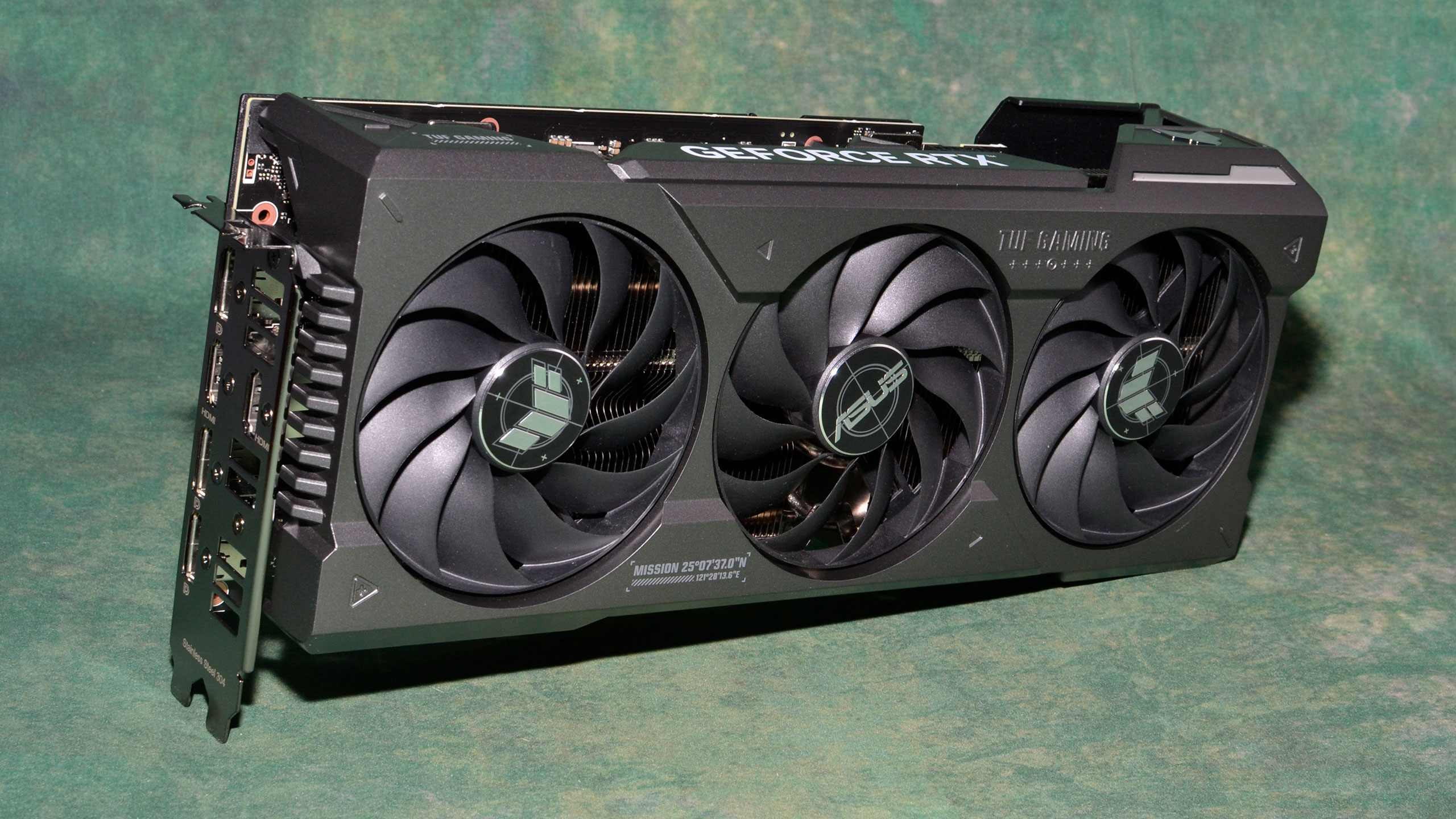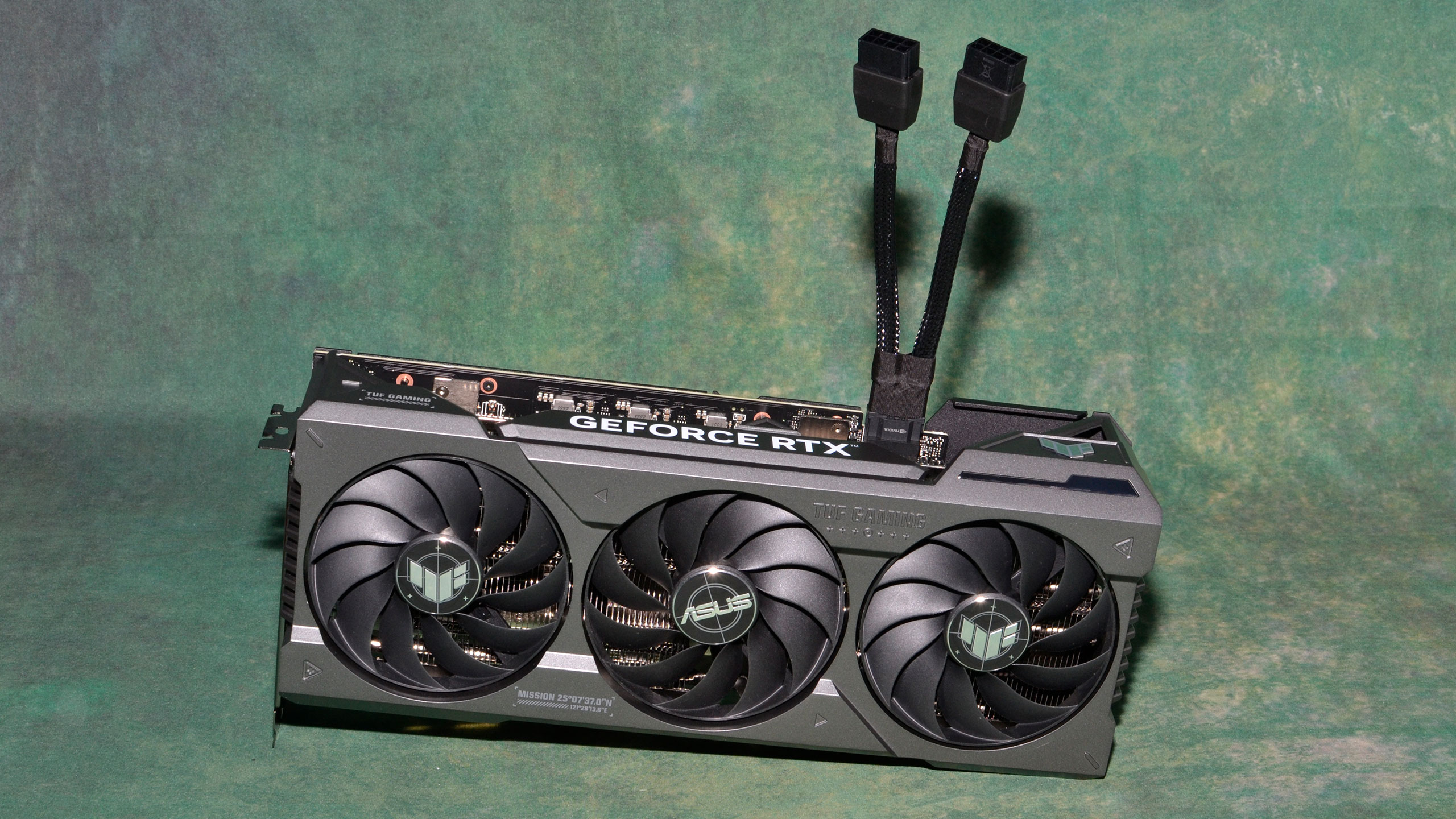Why you can trust Tom's Hardware
Our graphics card test PC uses an Nvidia PCAT v2 device, and we've switched from the Powenetics hardware and software we've previously used to Nvidia PCAT, as it gives us far more data without the need to run separate tests. PCAT with FrameView allows us to capture power, temperature, and GPU clocks from our full gaming suite — along with the usual frame times. The charts below are the geometric mean across all 15 games, though we also have full tables showing the individual results further down the page.
If you're wondering: No, PCAT does not favor Nvidia GPUs in any measurable way. We checked power with our previous setup for the same workload and compared that with the PCAT, and any differences were well within the margin of error (less than 1%). PCAT is external hardware that simply monitors the power draw of the PCIe power cables as well as the PCIe x16 slot by sitting between the PSU/motherboard and the graphics card.
We have separate charts for 1080p medium/ultra, 1440p ultra, and 4K ultra in the galleries below. Keep in mind that factory overclocked cards will also perform differently, so the data here is for the Asus RTX 4070 Ti Super TUF Gaming. Overclocked third party cards will likely use more power than our sample, while reference clocked cards should perform similarly to the Asus card we're looking at.
Nvidia RTX 4070 Ti Super Power Use
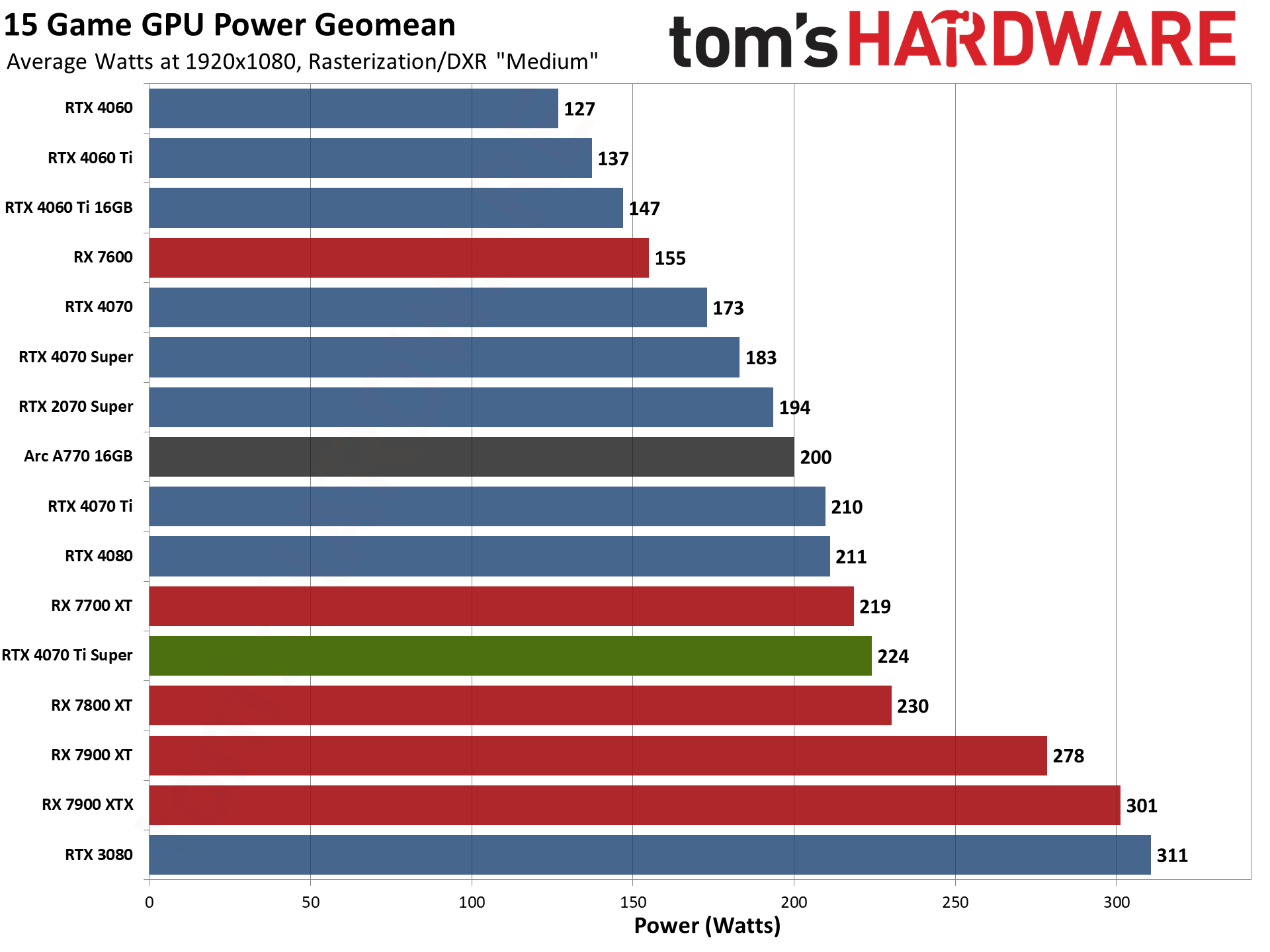
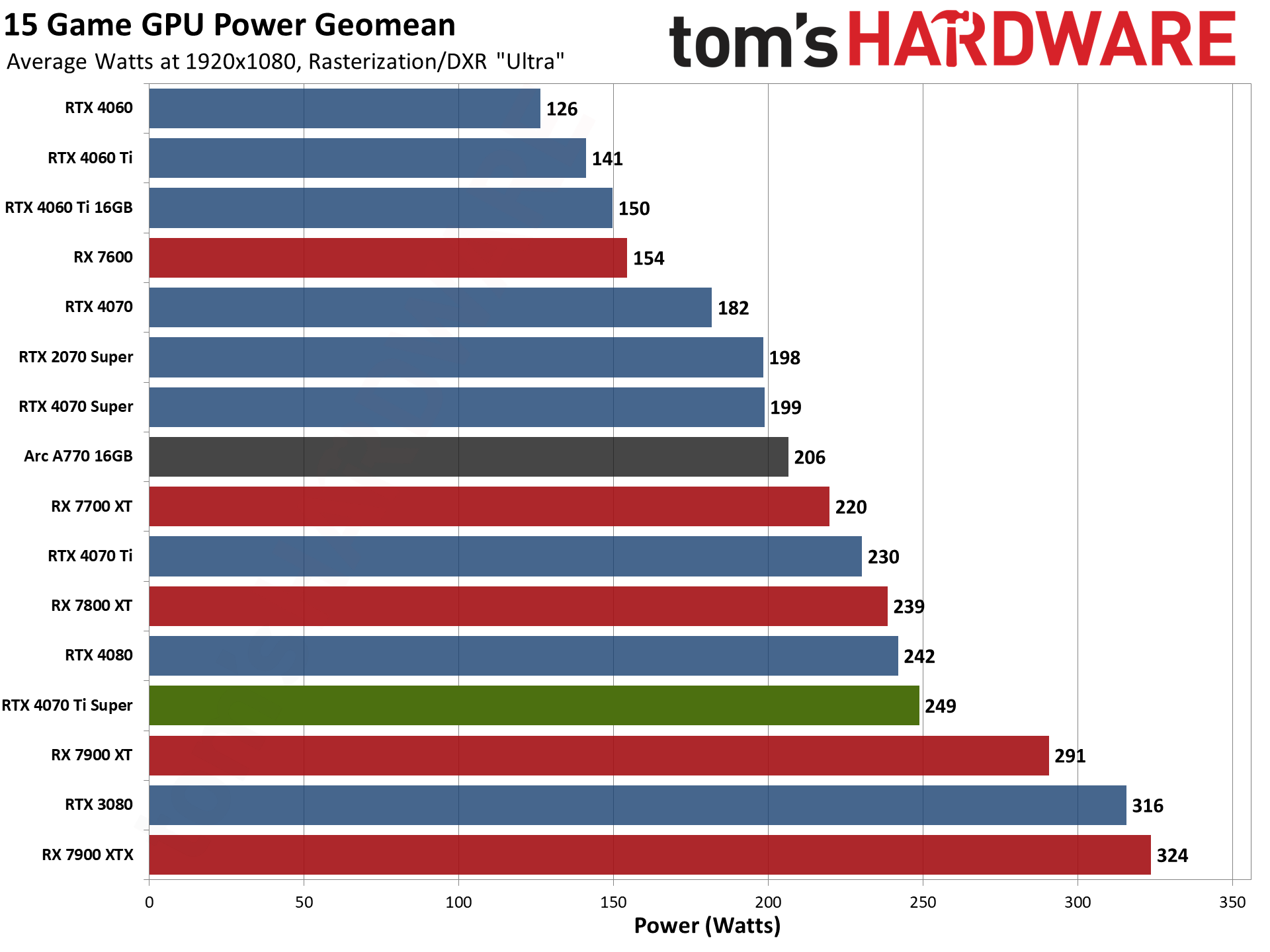
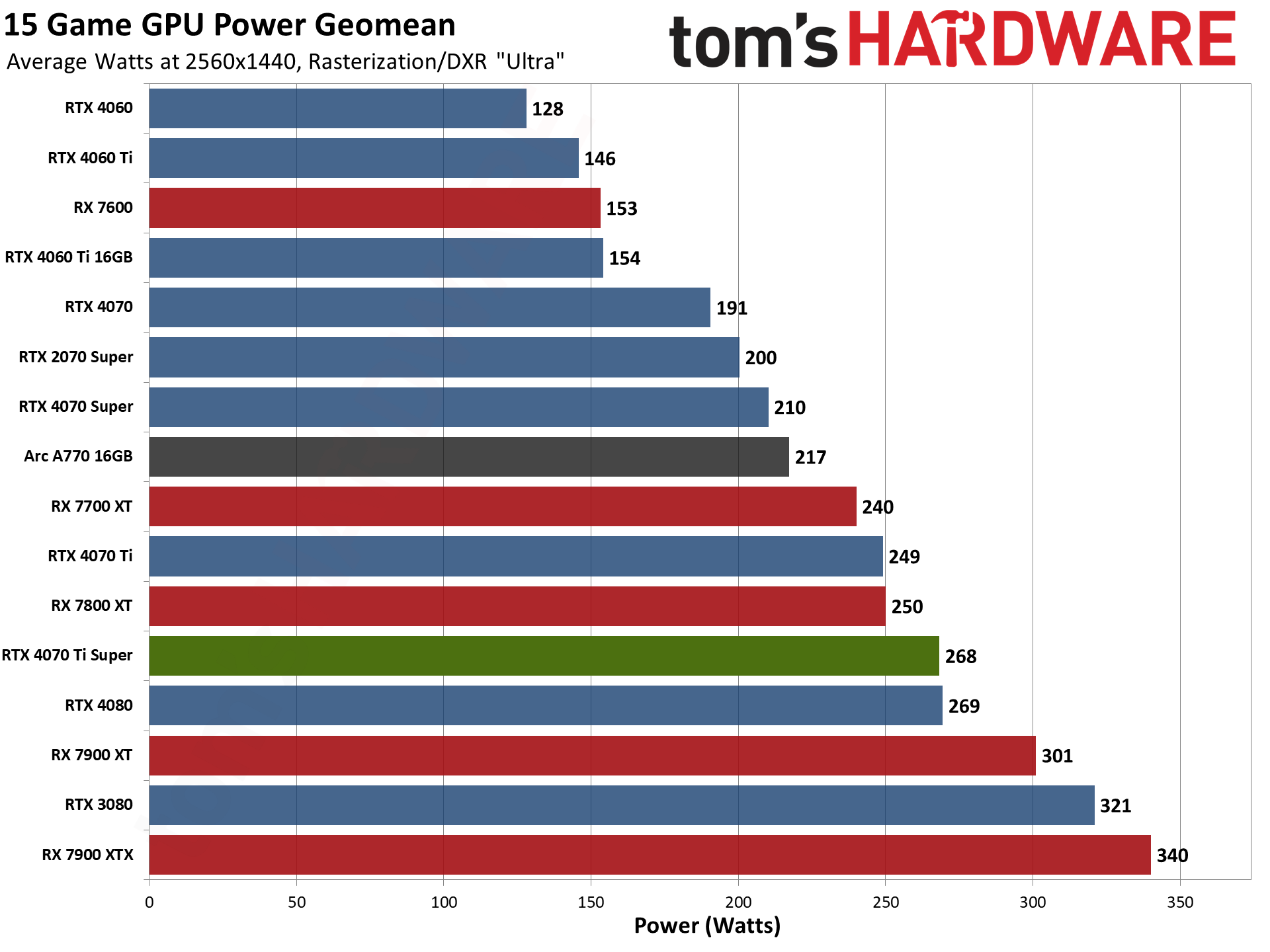
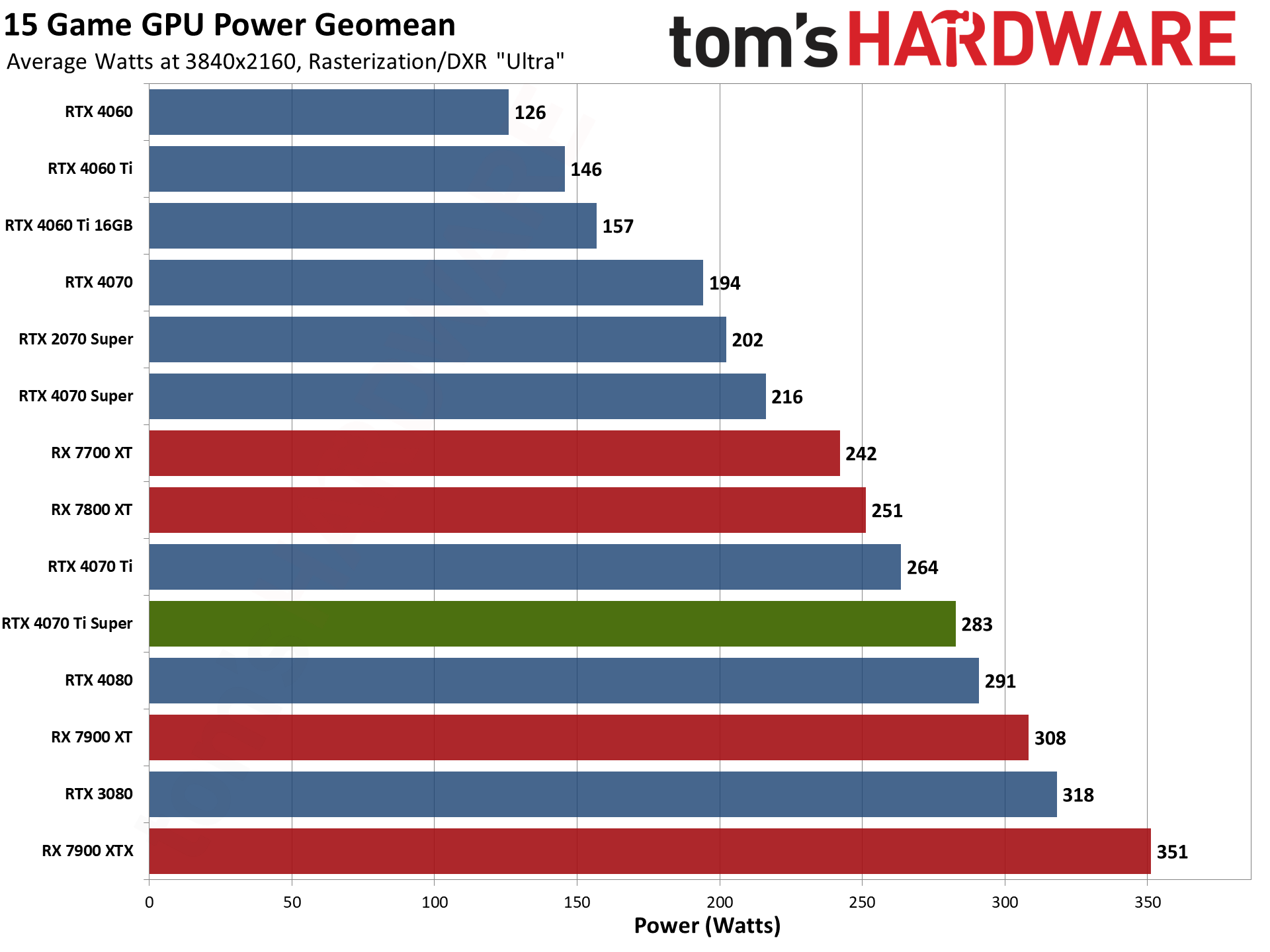
Nvidia's Ada Lovelace architecture clearly reigns as the power efficiency champion — we have performance per watt data in the tables at the bottom of the page. The new 4070 Ti Super has a TGP (total graphics power) rating of 285W, the same as the vanilla 4070 Ti. In our test suite, it averaged 224W at 1080p medium, 249W at 1080p ultra, 268W at 1440p ultra, and 283W at 4K ultra. That's about 15–20 watts more than the 4070 Ti Founders Edition at each setting, but still below the rated TGP in most cases.
Performance on average comes very close to matching the RX 7900 XTX, while drawing about 75W less power. It also outperforms the 7900 XT by around 13% and uses about 25–50 watts less power, and ranges from 5W less to 30W more power than the RX 7800 XT while delivering up to 45% more performance.
In general, the RTX 40-series GPUs are roughly 30–50 percent more efficient than AMD's competing RX 7000-series RDNA 3 GPUs.
Nvidia RTX 4070 Ti Super Clock Speeds
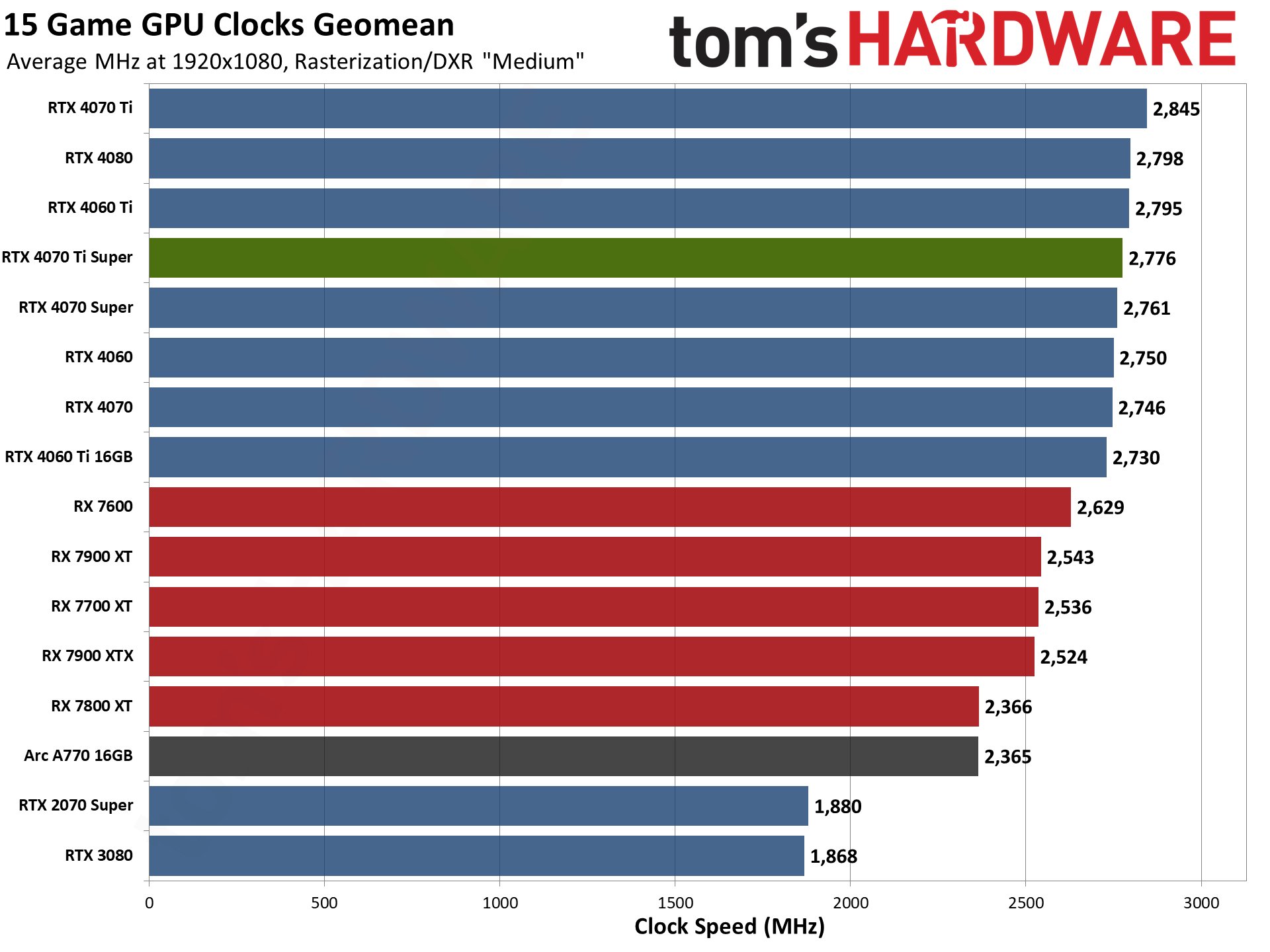
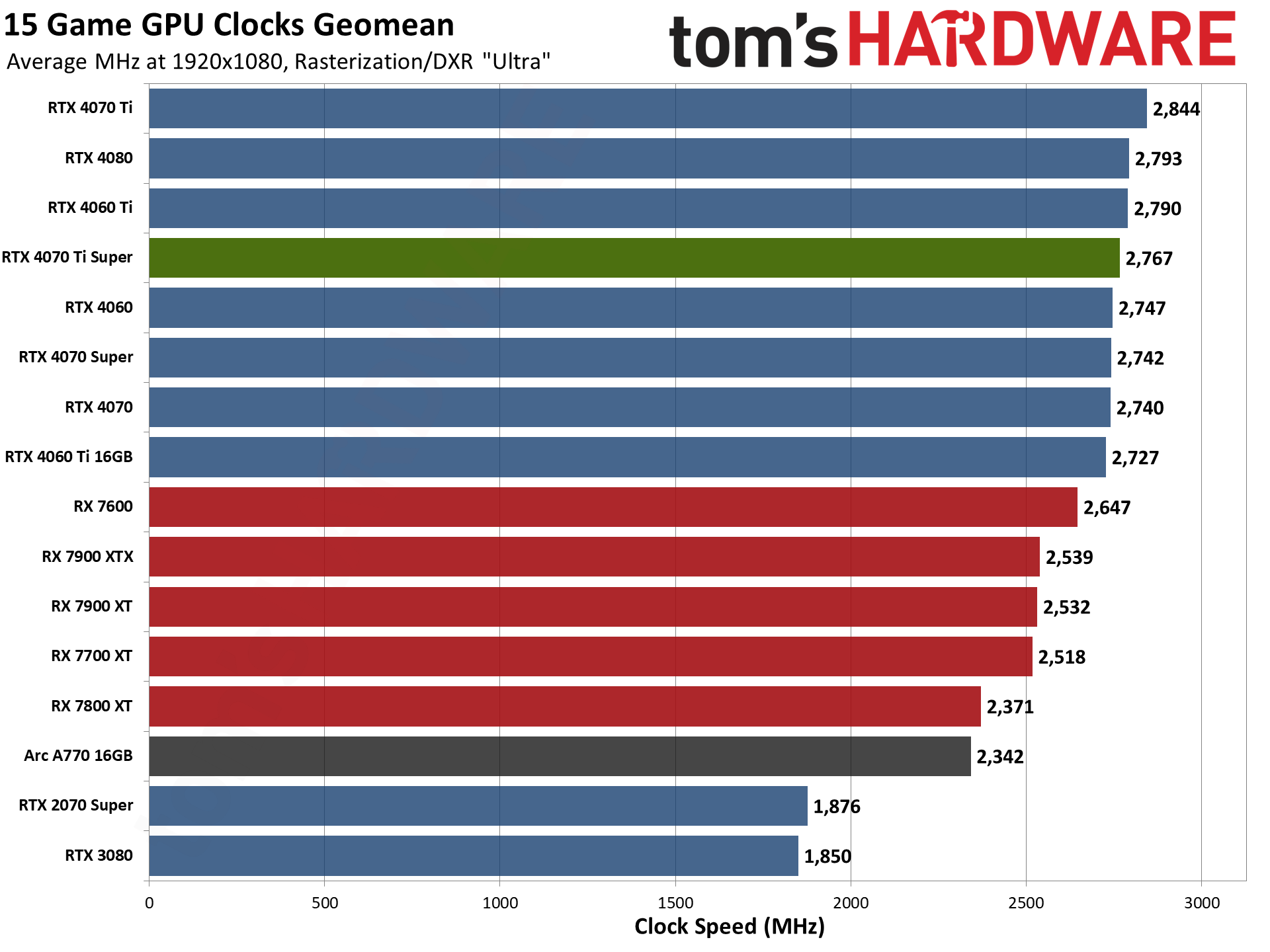
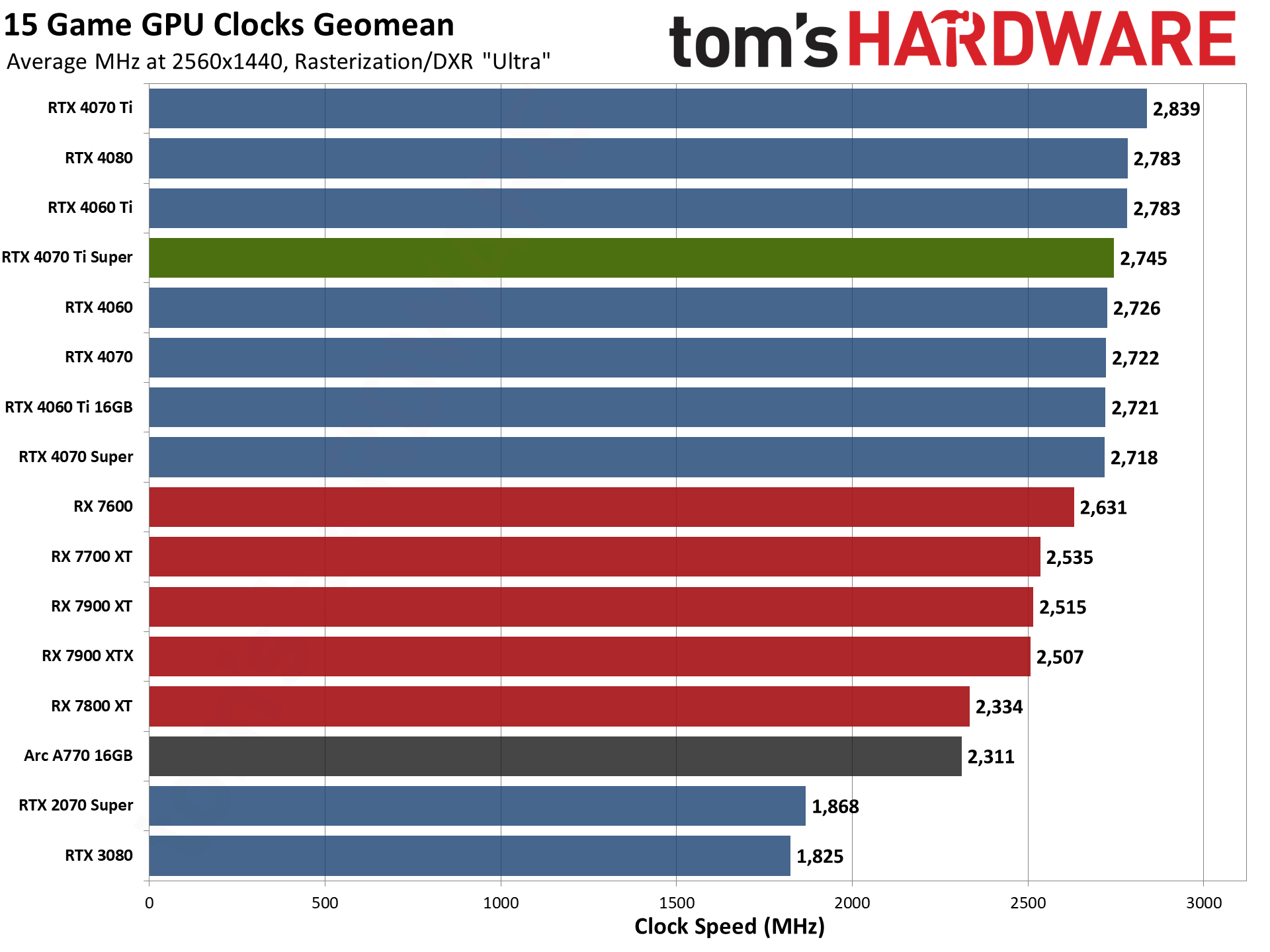
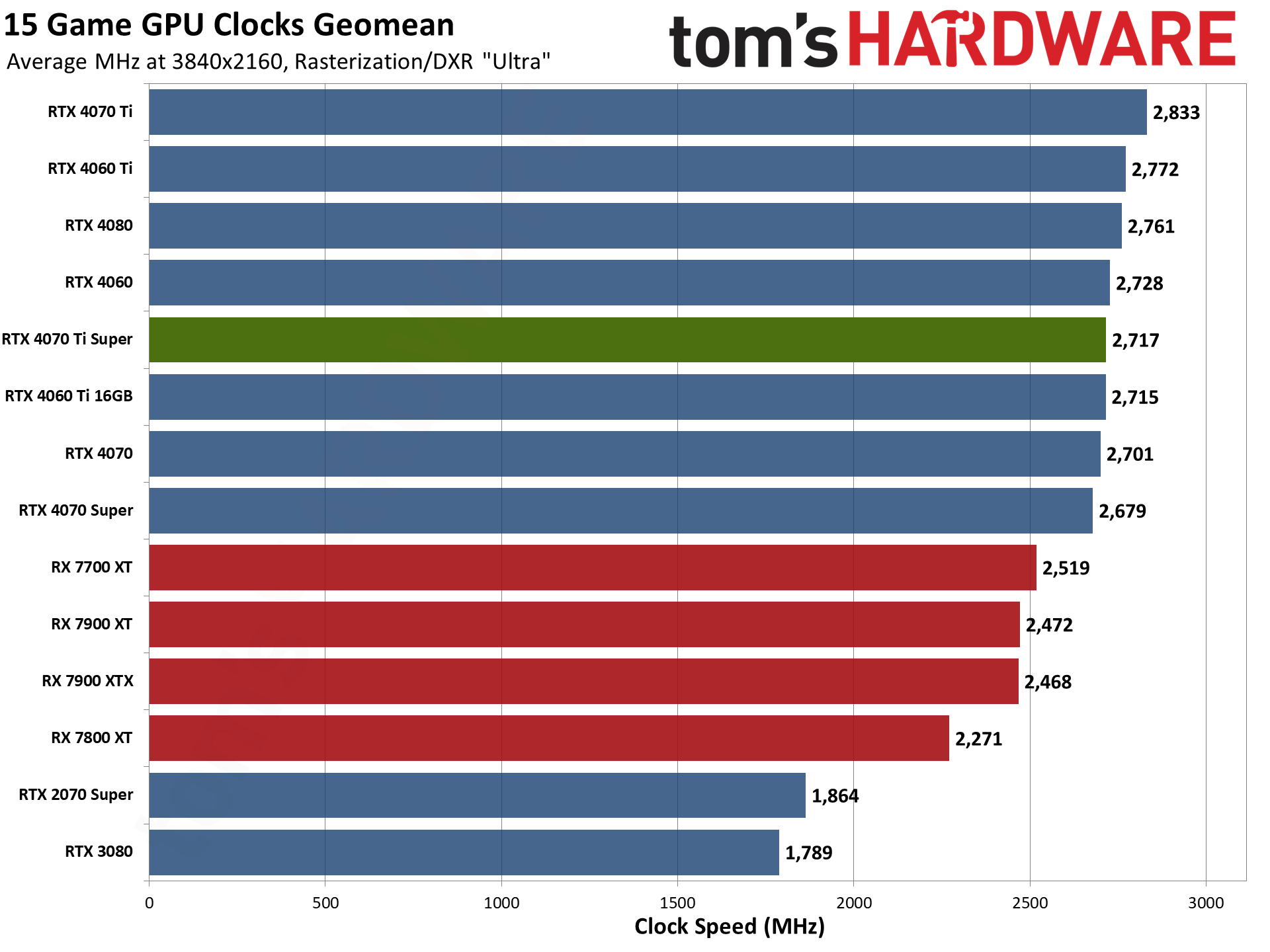
AMD and Nvidia have both made major improvements in recent years in GPU clock speeds. We didn't see a reference clocked GPU break the 2 GHz barrier until RDNA 2 in 2020, and now most current generation GPUs are clocking in the 2.5–2.8 GHz range. Nvidia's average clocks for every GPU are quite a bit higher than the conservative boost clocks, while AMD's clocks are generally much higher than the "Game" clocks and are relatively close to the advertised boost clocks.
The RTX 4070 Ti Super has a 2610 MHz boost clock, and in our test suite it averaged 2717–2776 MHz, with the higher range coming at lower resolutions and settings. Because of the higher official boost clock, however, it means that the paper specs can make the 4070 Ti Super look a bit better than it performs in practice — as noted already, the RTX 4080 'only' has a 2505 MHz boost clock, but in our testing it averaged higher clocks than the 4070 Ti Super.
Nvidia RTX 4070 Ti Super Temperatures
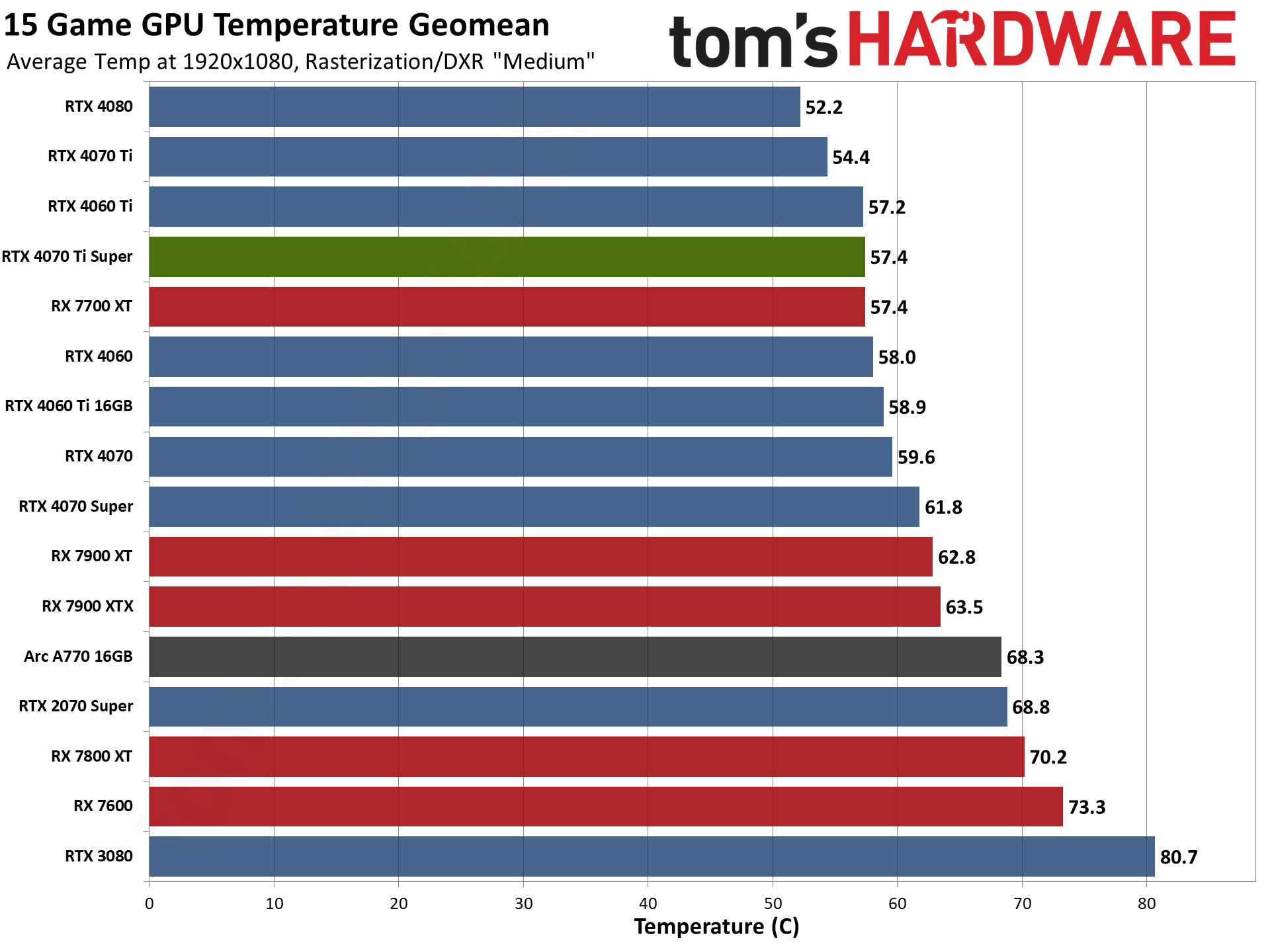
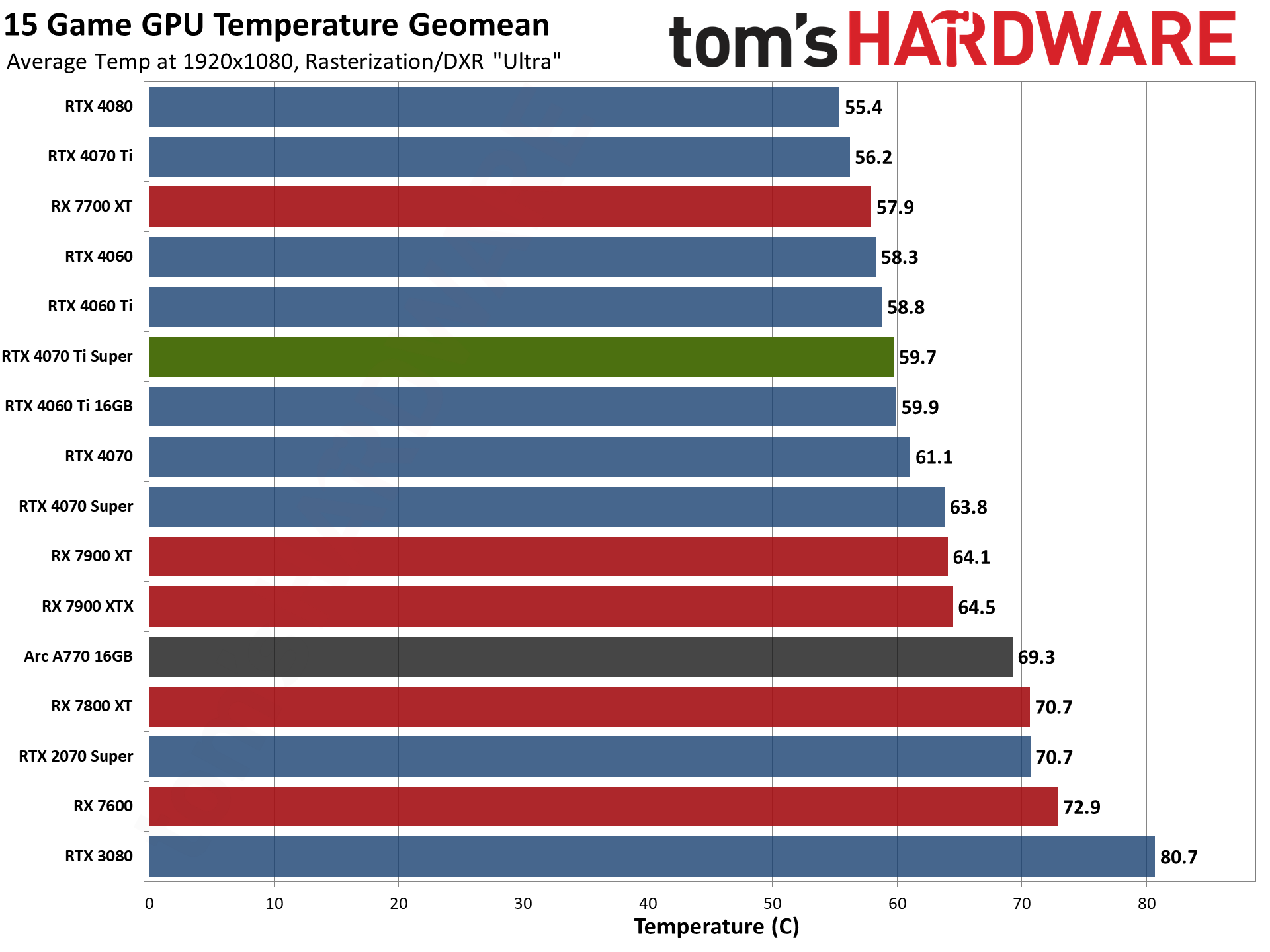
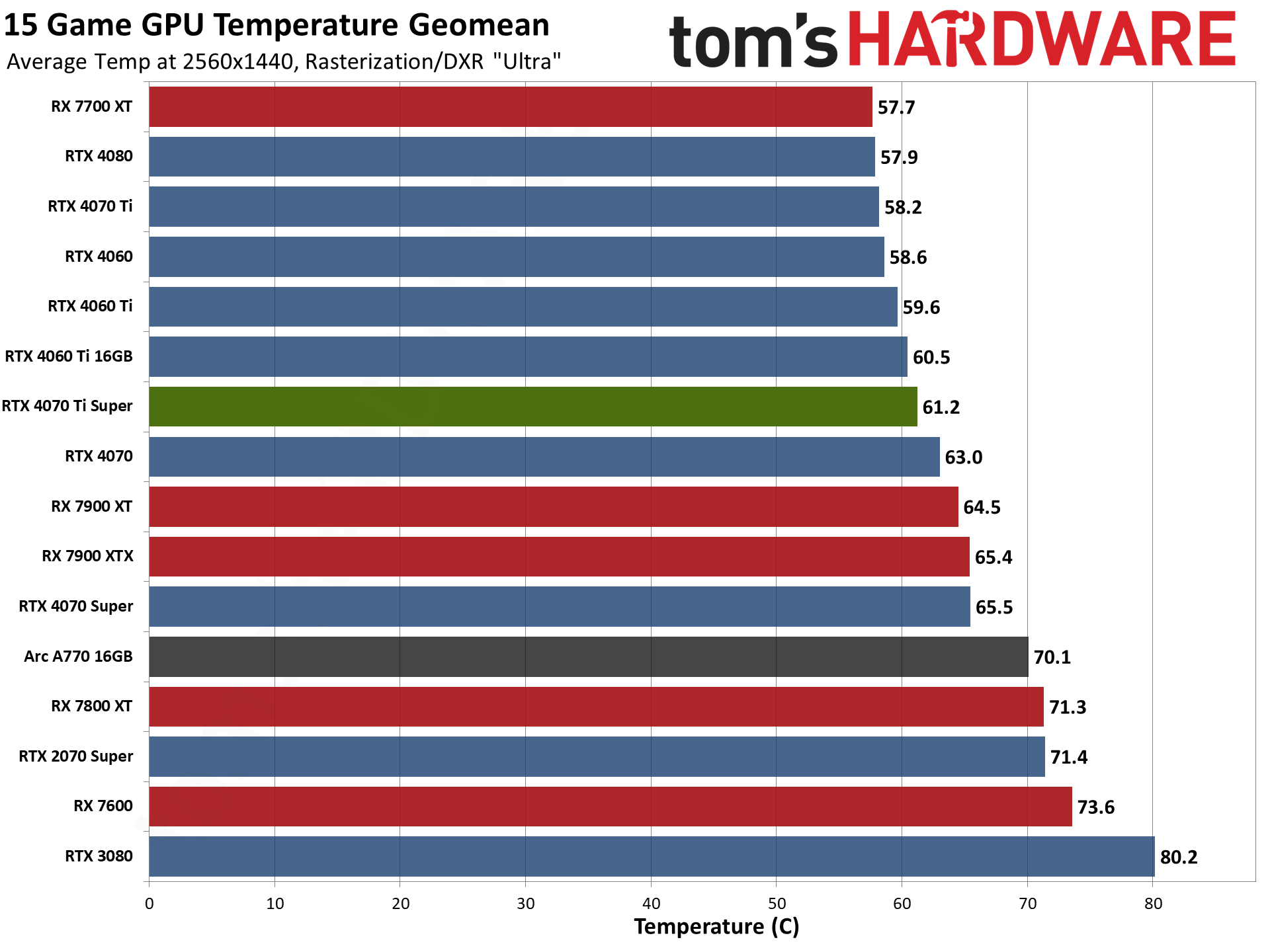
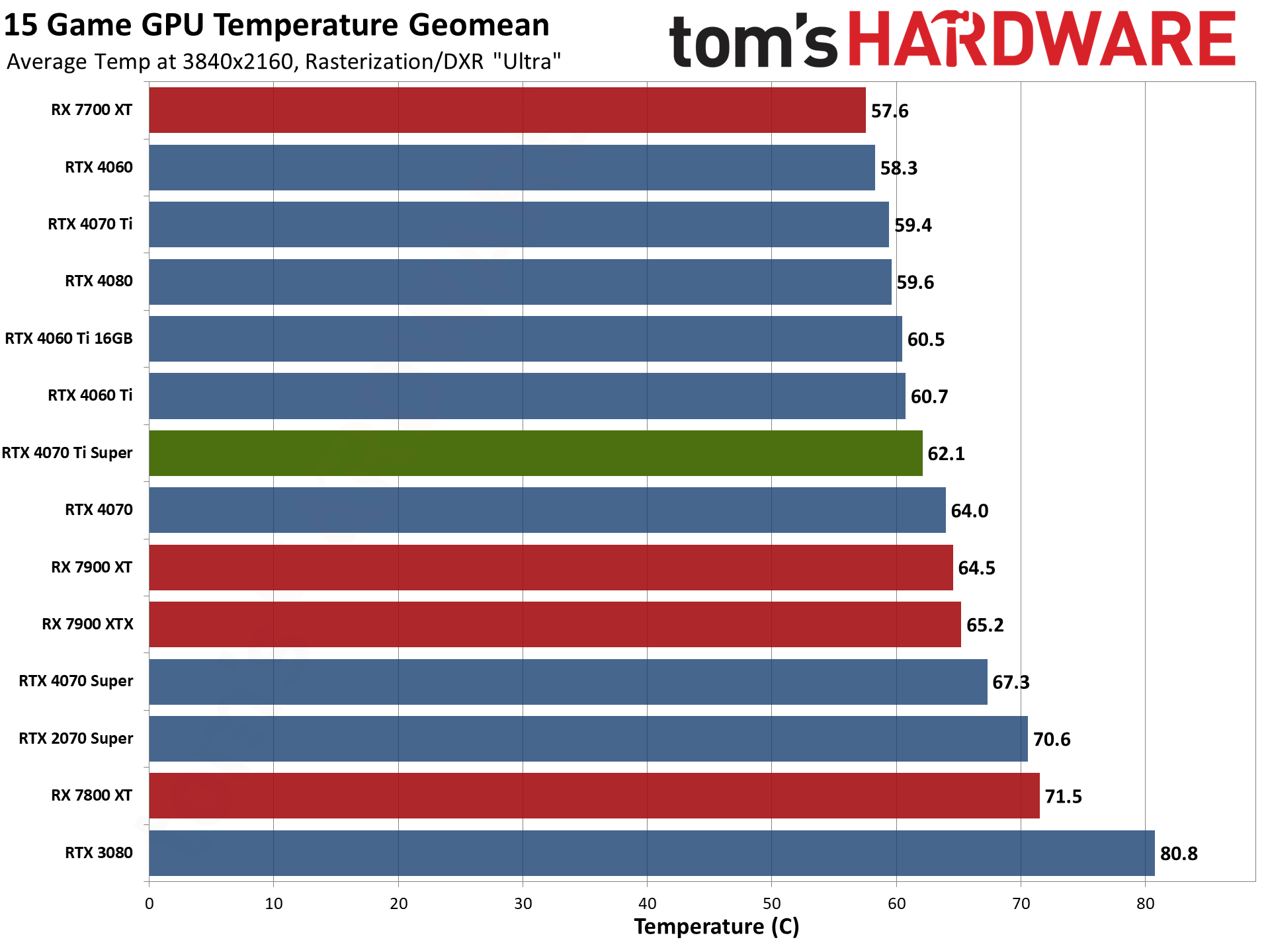
GPU temperatures depend very much on firmware tuning and fan speeds, and all of the cards are running comfortably below anything we'd consider alarming. If you live in a hotter environment, the temperatures and fan speeds will naturally be higher (we test in a 21C ambient, +/-2C), but thankfully none of these GPUs are getting anywhere near the 90C range that we often saw in the R9 300/Fury and RX Vega era.
The Asus RTX 4070 Ti Super TUF Gaming has a rather large cooler, with three fans, and as expected it runs quite cool. In fact, the highest temperature we saw in any game throughout our testing was only 65C (Total War: Warhammer 3 at 4K), with average temperatures across our suite ranging from as low as 57C at 1080p medium to 62C at 4K ultra.
But temperatures on their own don't tell the entire story. We also need to look at noise levels and their accompanying fan speeds.
Nvidia RTX 4070 Ti Super Noise Levels
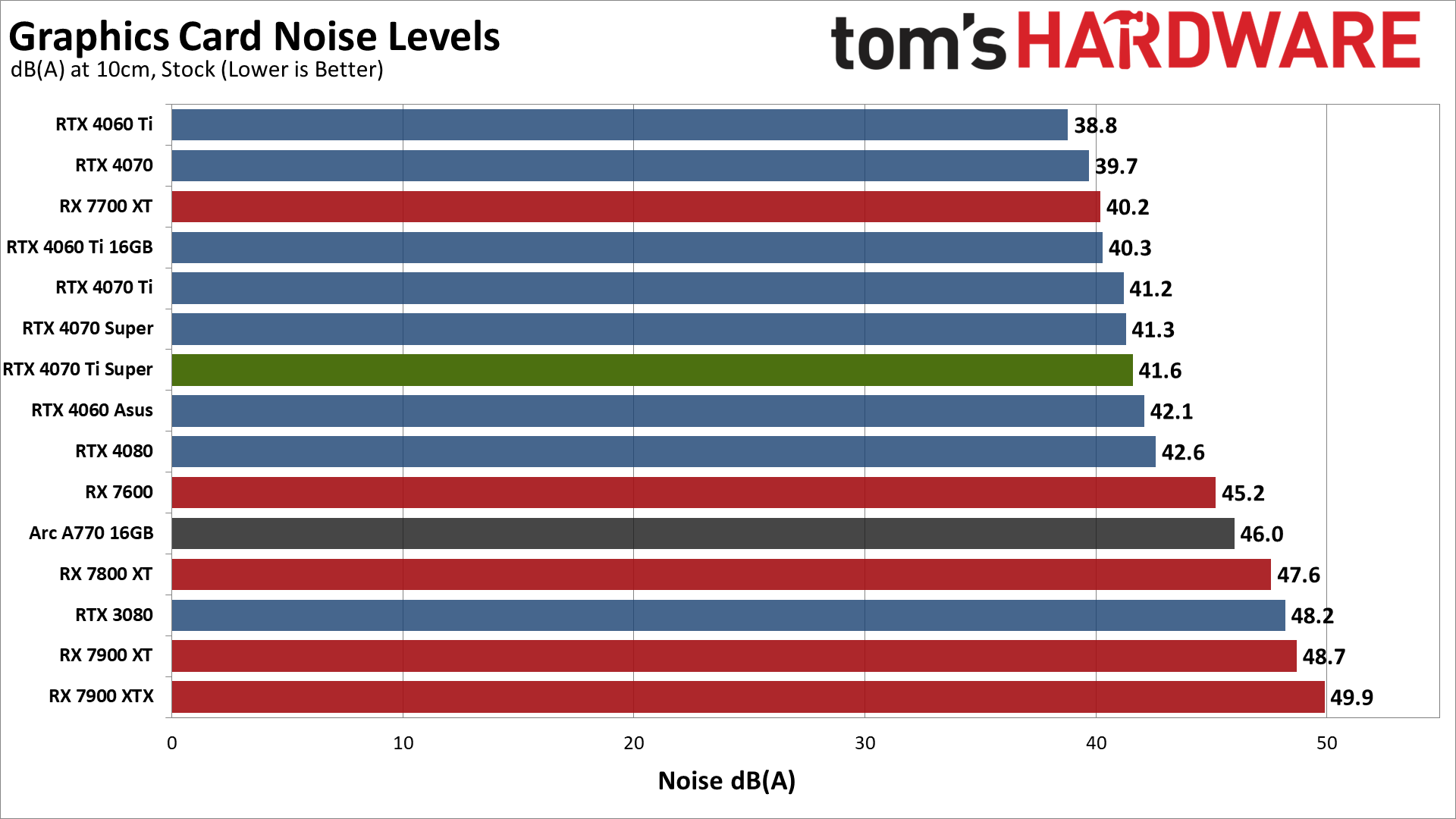
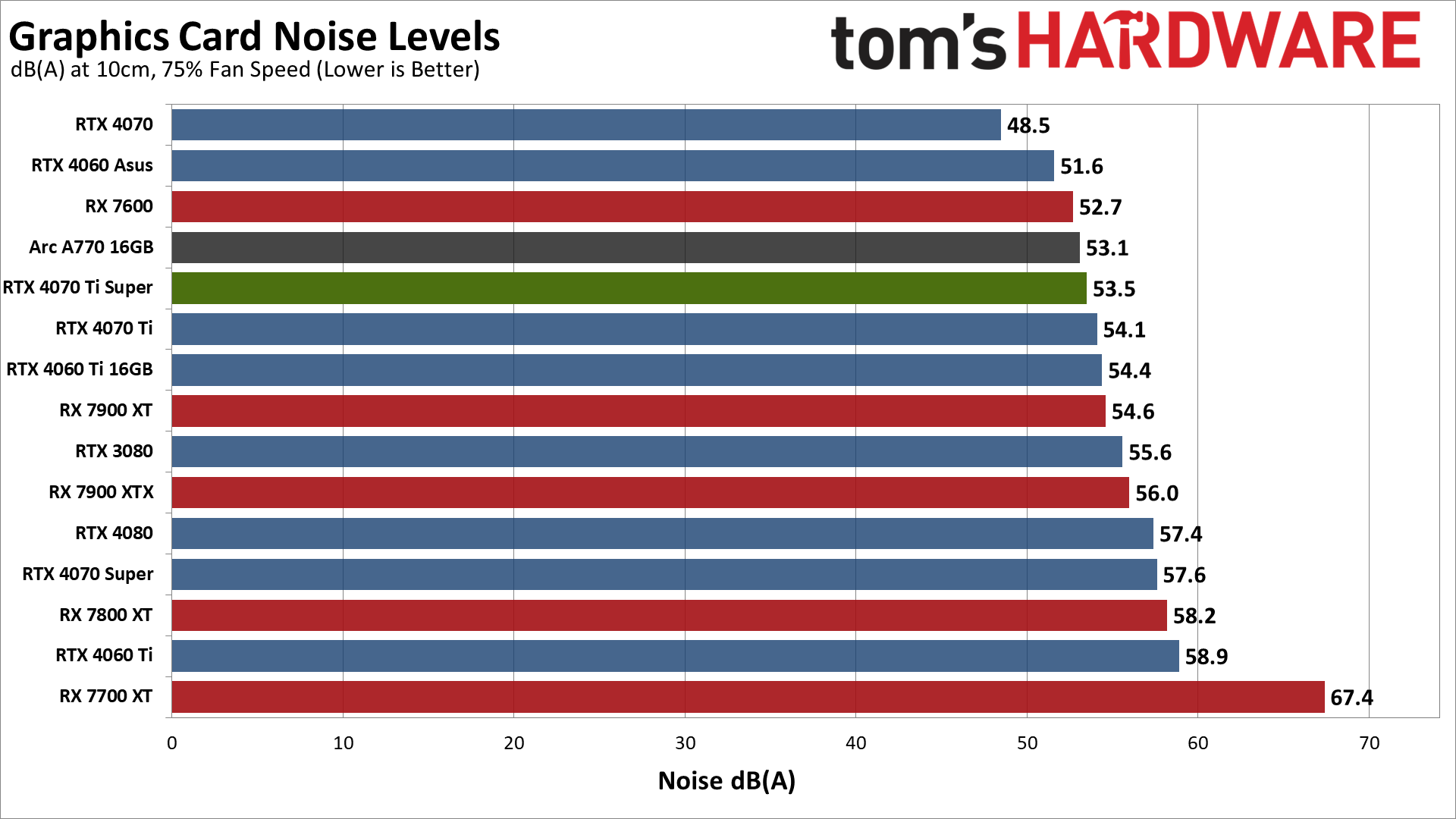
Our noise test consists of running Metro Exodus, because it's one of the more power hungry games. We load a save, with graphics set to appropriately strenuous levels (4K ultra in this case), and then let the game sit for at least 15 minutes before checking noise levels. We place the SPL (sound pressure level) meter 10cm from the card, with the mic aimed at the center of the middle fan (or the center of the rear fan if there are only two fans). This helps minimize the impact of other noise sources, like the fans on the CPU cooler. The noise floor of our test environment and equipment is around 31–32 dB(A).
Thanks to the large cooler, the Asus 4070 Ti Super has relatively quiet noise levels. After several minutes of intense gaming, with the card at a relatively stead load of around 285W, noise leveled off at 41.6 dB(A). That corresponded with a fan speed of 47%, meaning there's plenty of headroom for the card to increase fan speeds if needed. We also tested with a static fan speed of 75%, which resulted in 53.5 dB(A).
This is understandably not the quietest graphics card we've ever tested, but cards that produce less noise also draw far less power than the 4070 Ti Super. The RTX 4060 Ti Founders Edition that sits at the top of our noise chart for example only uses a bit more than half the power of the Asus card. Power consumption tends to directly correlate with noise levels, though even larger coolers can sometimes fight against that trend.
Full Gaming Test Results
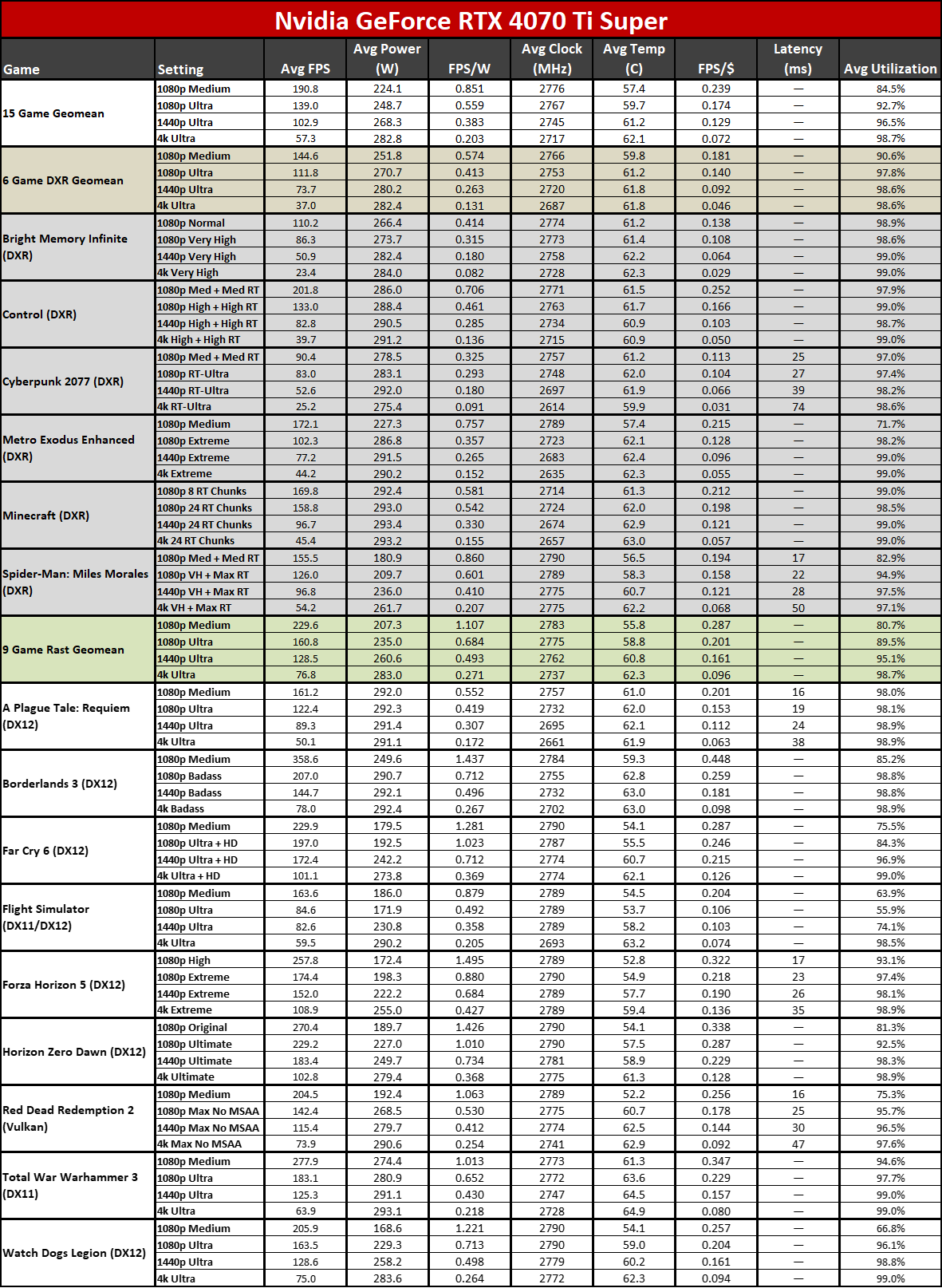
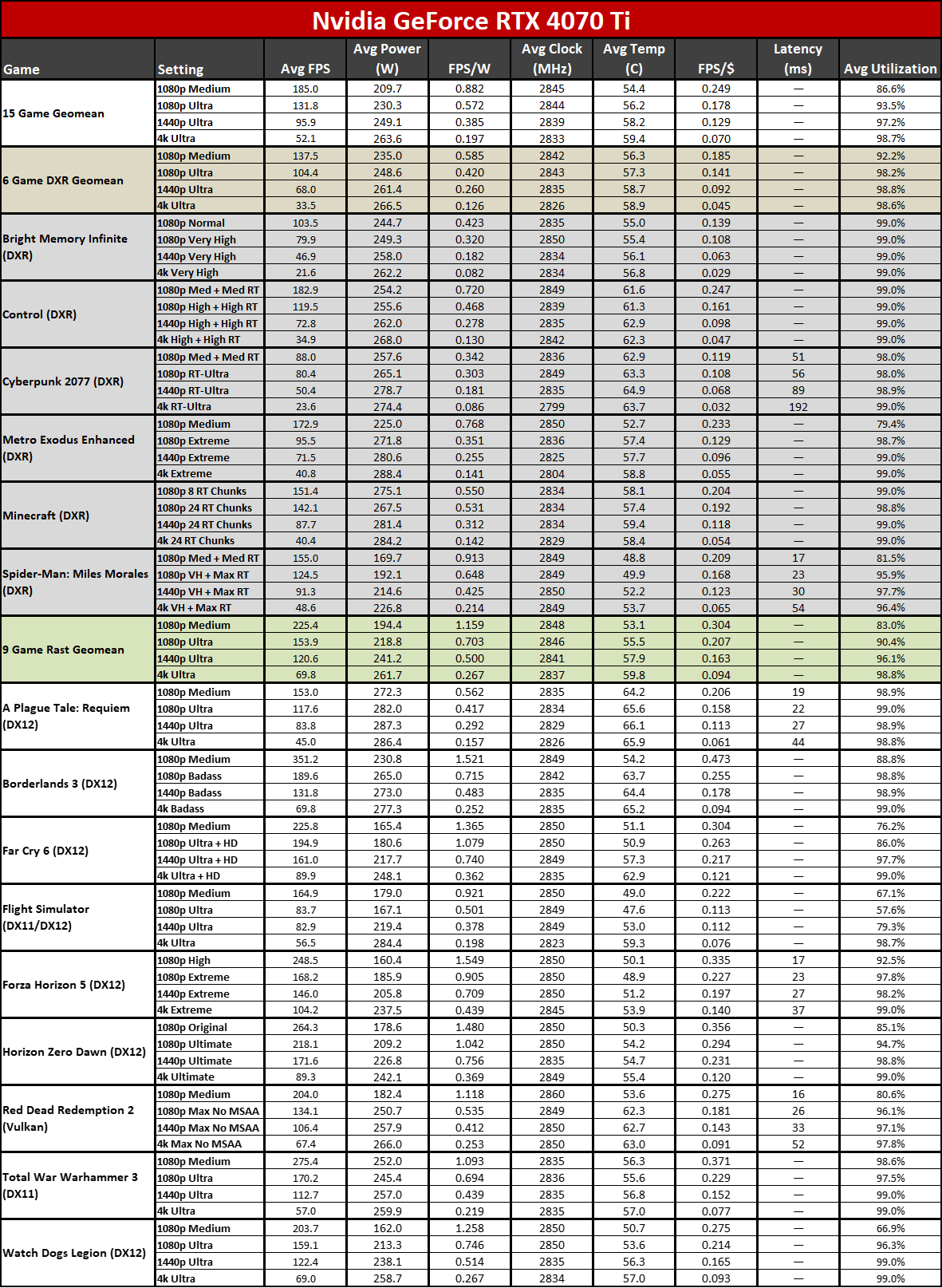
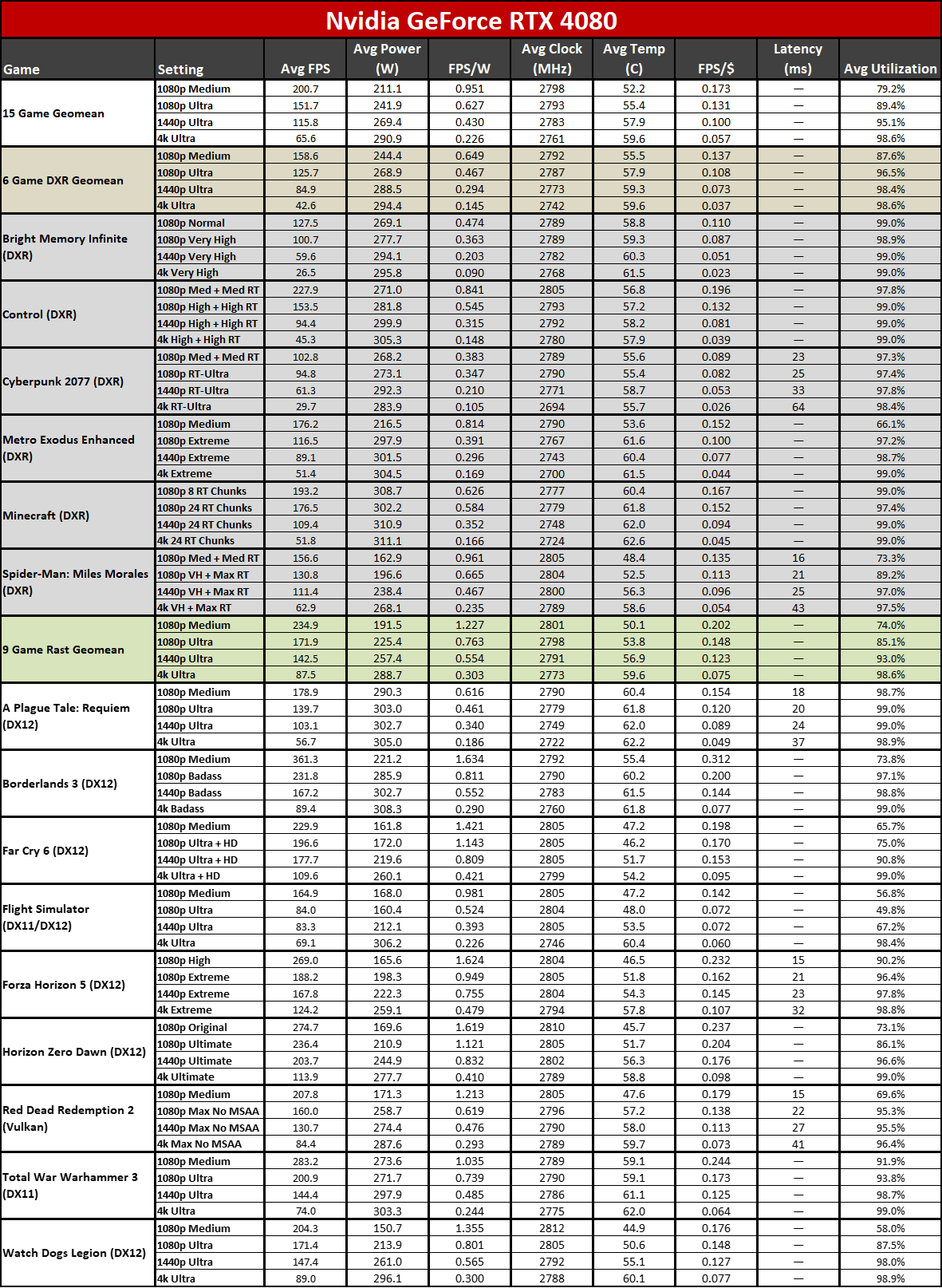
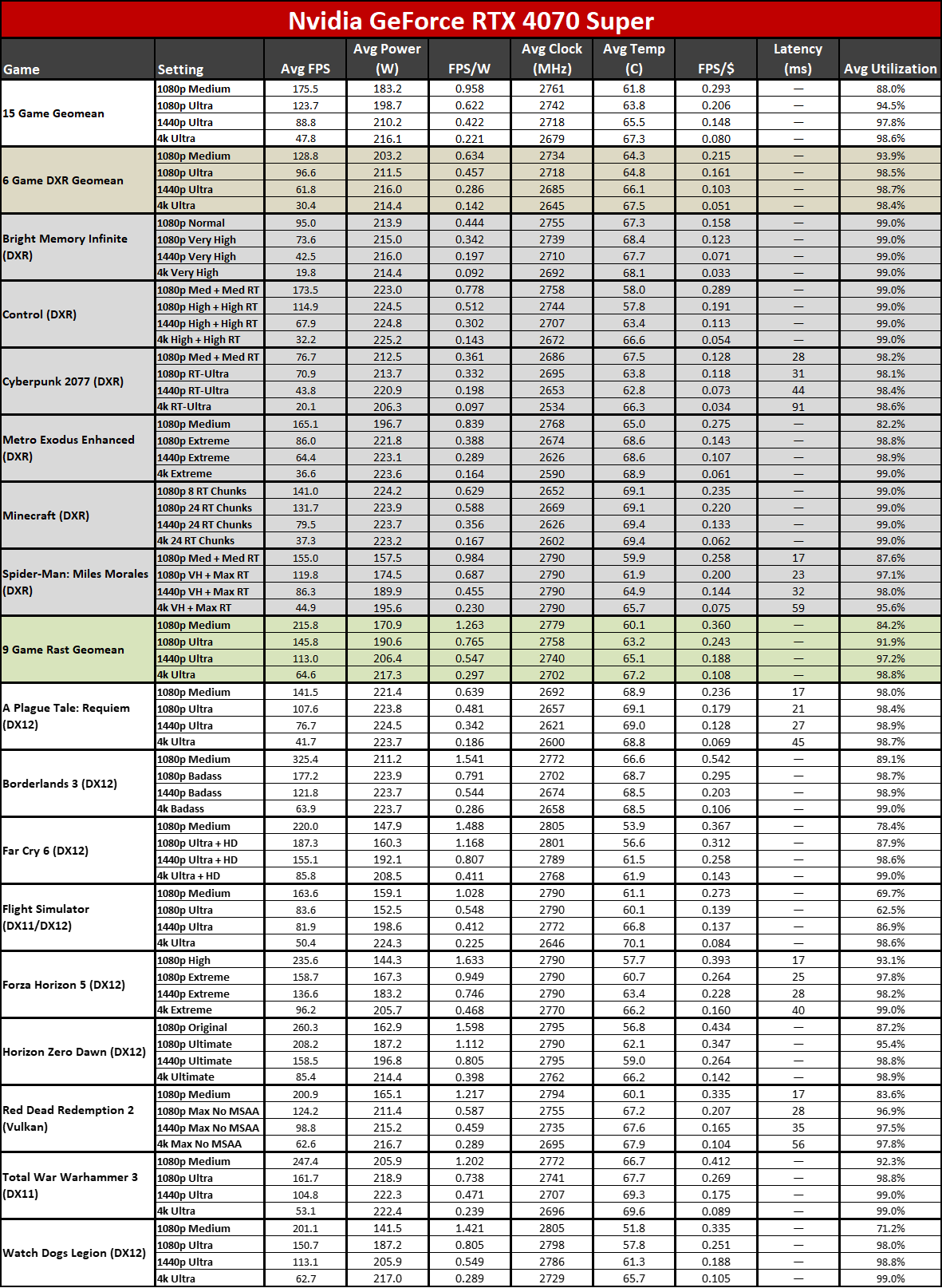
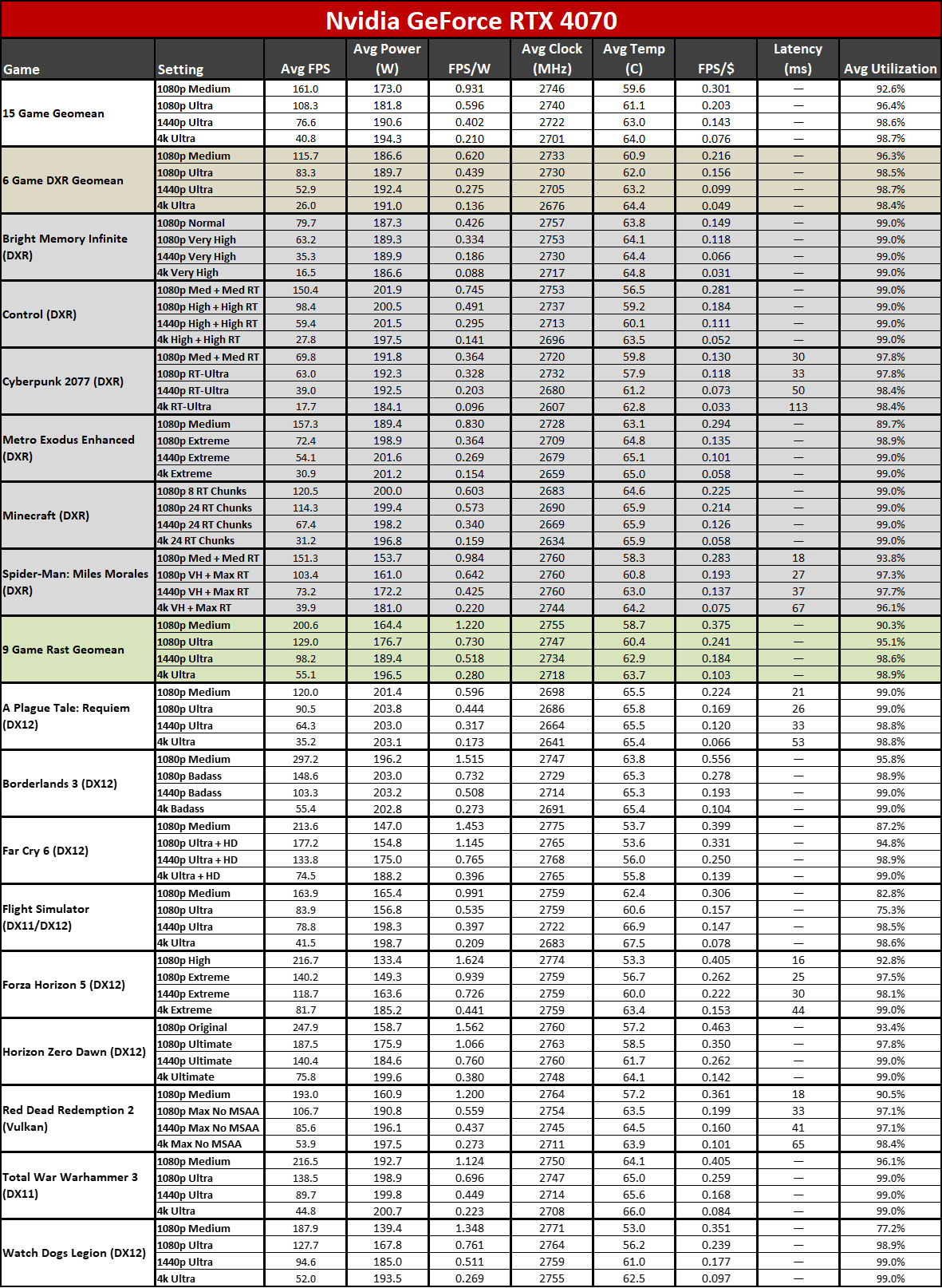
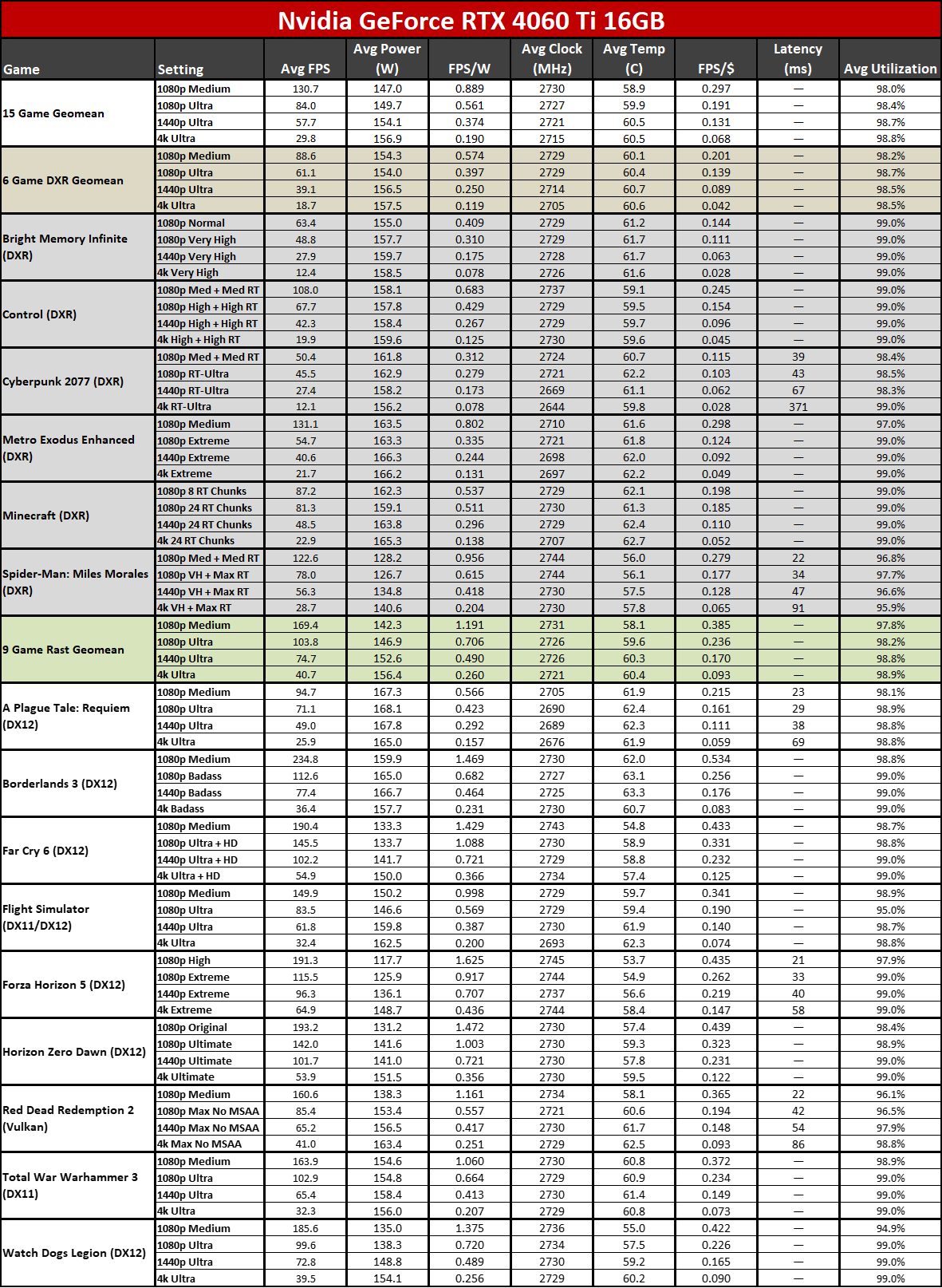
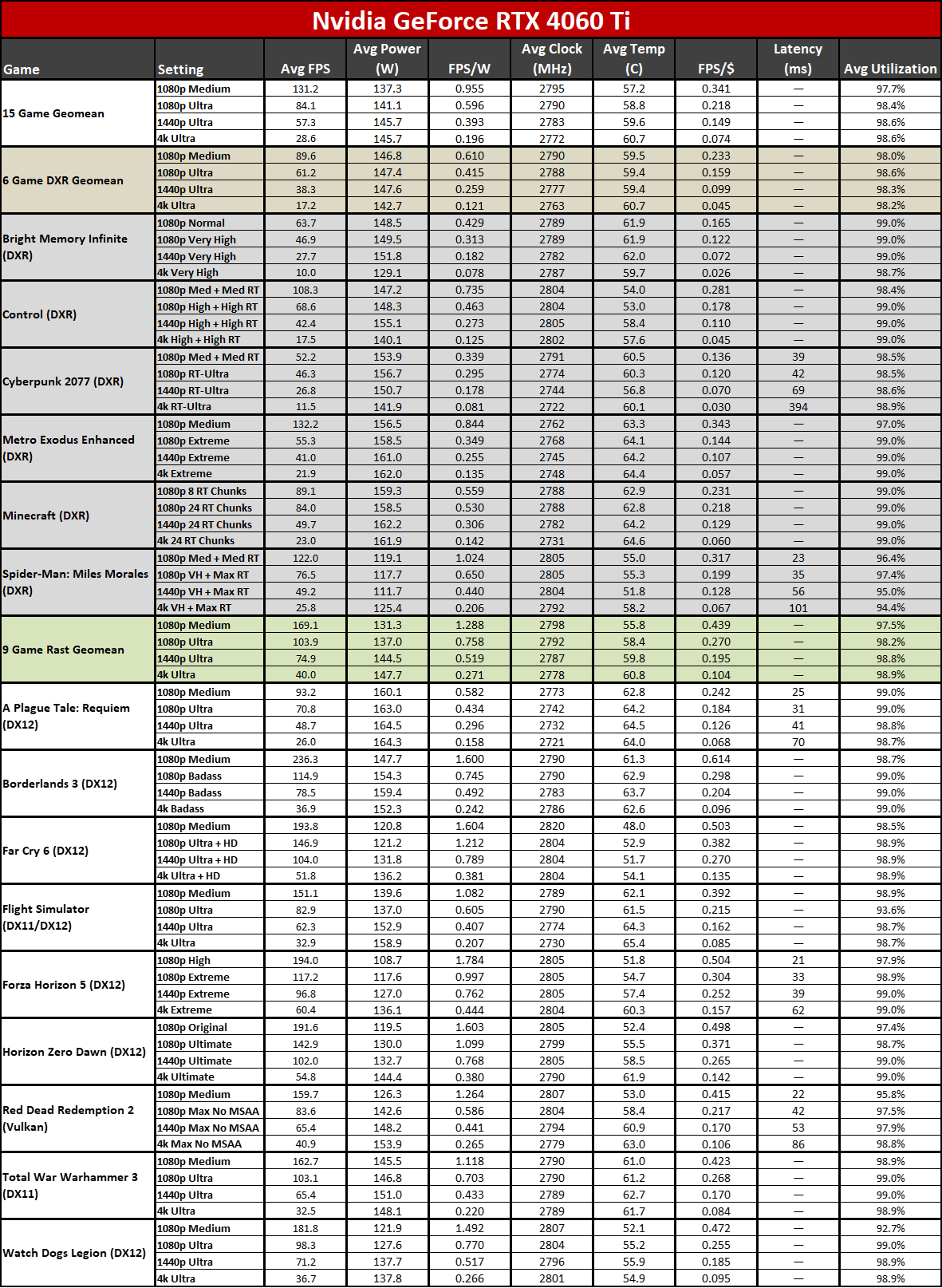
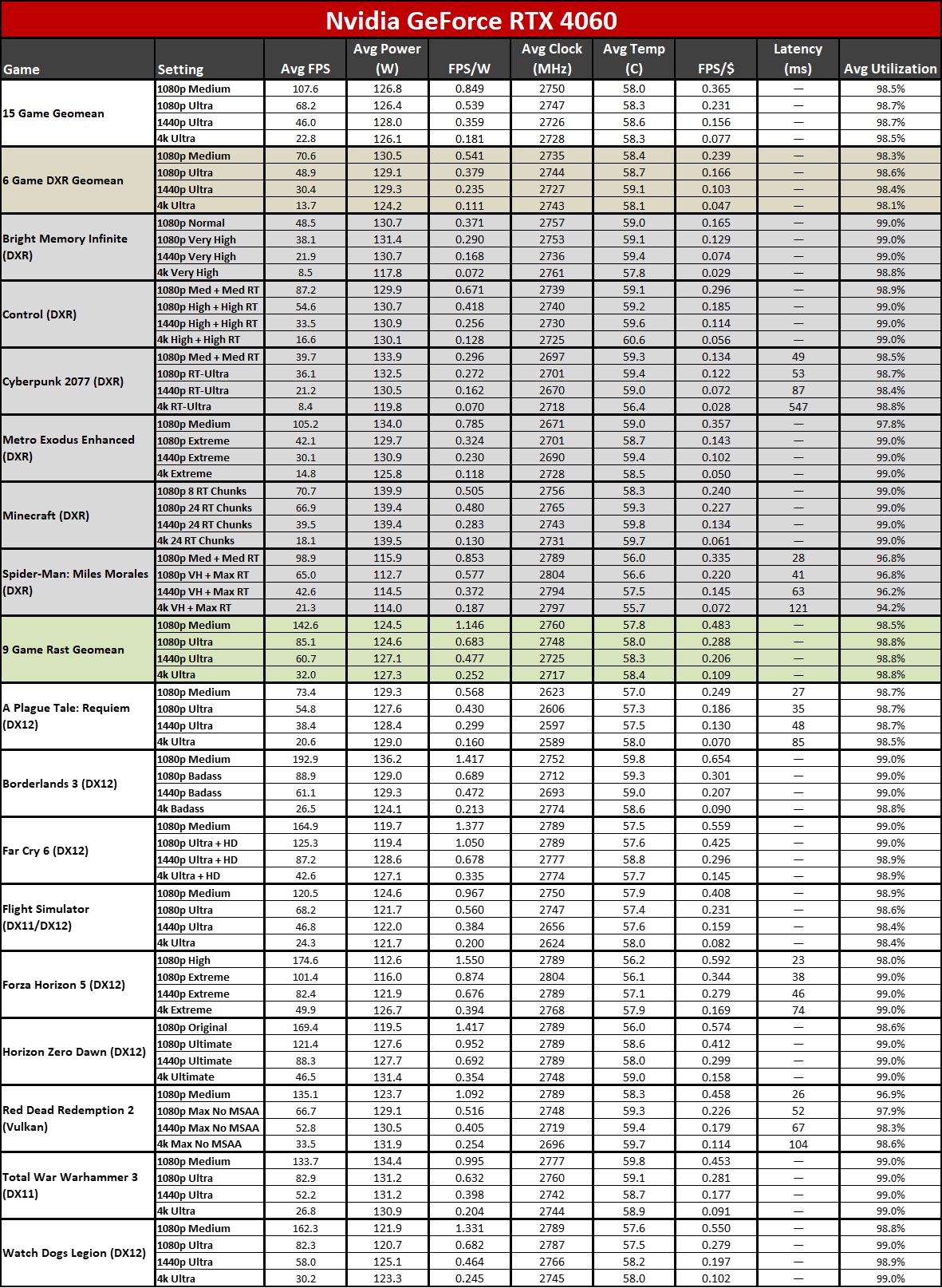
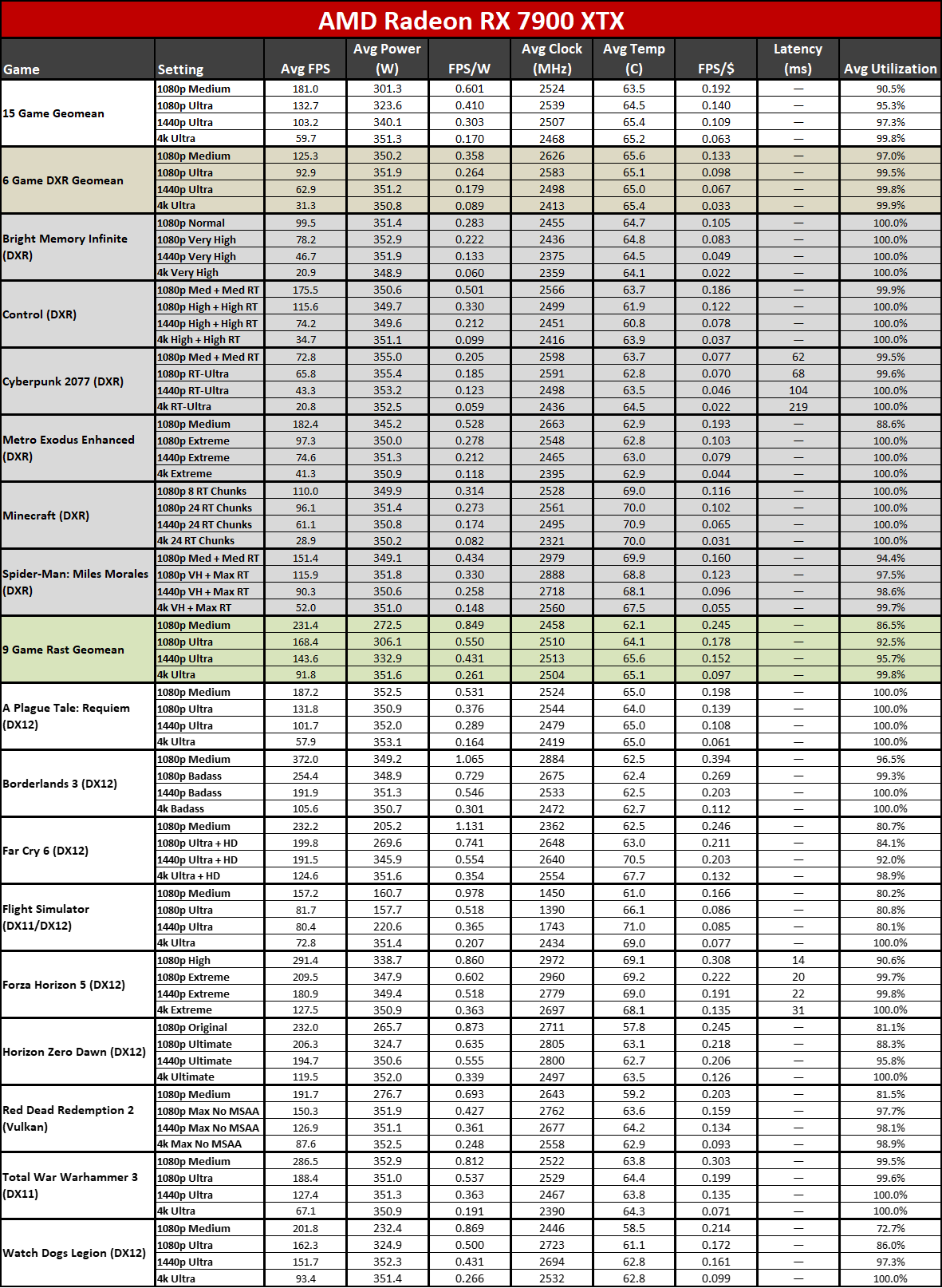
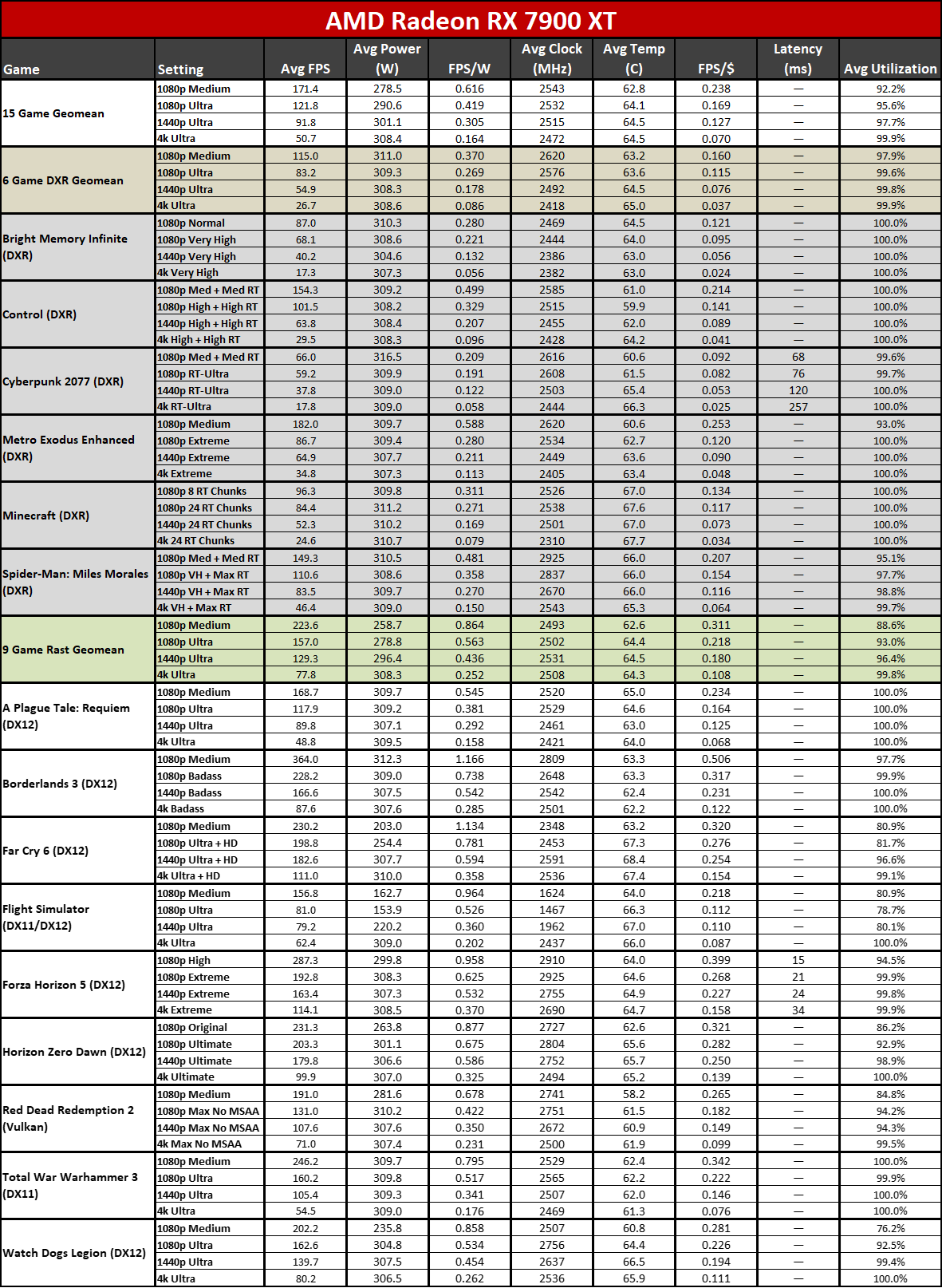
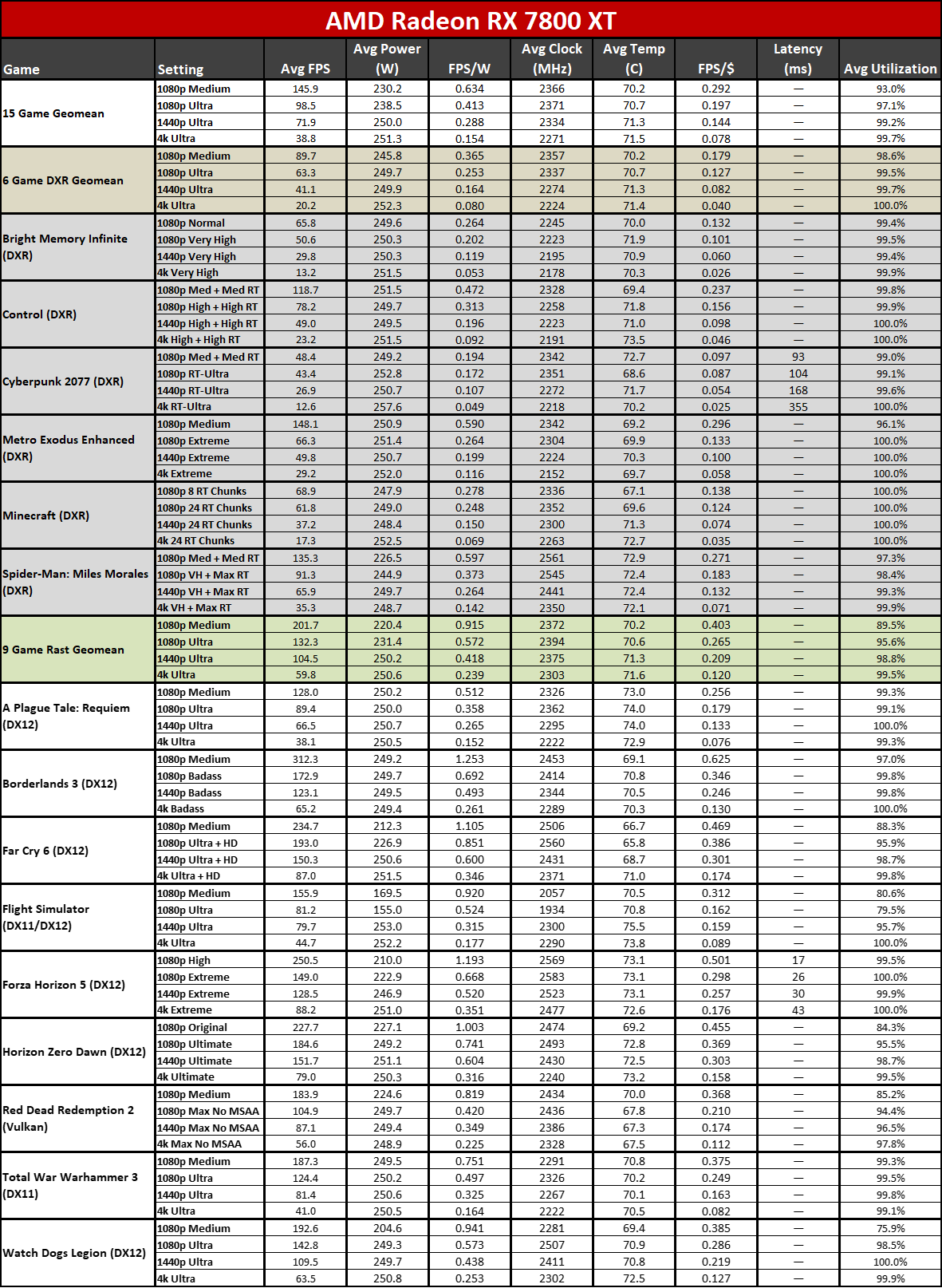
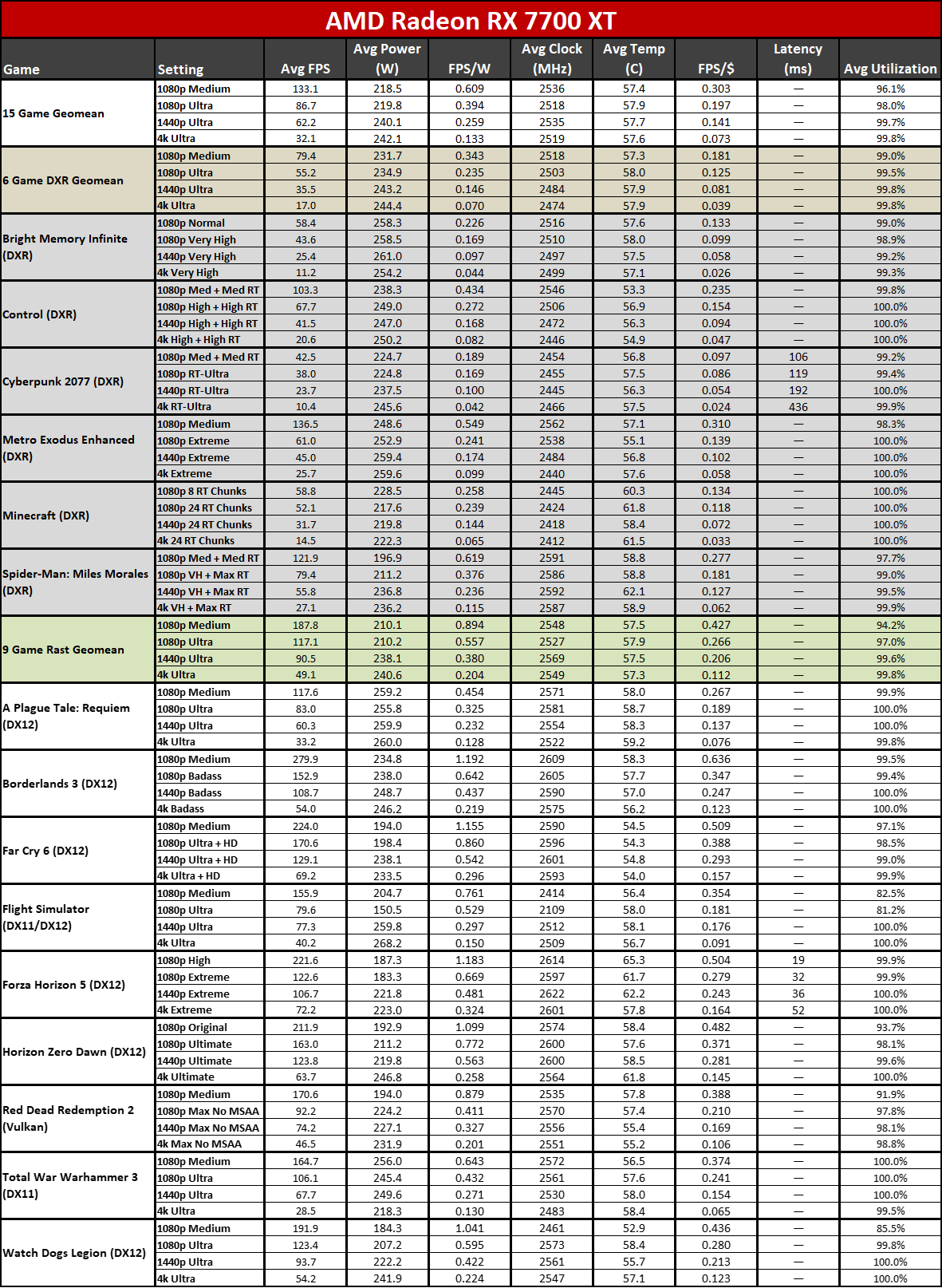
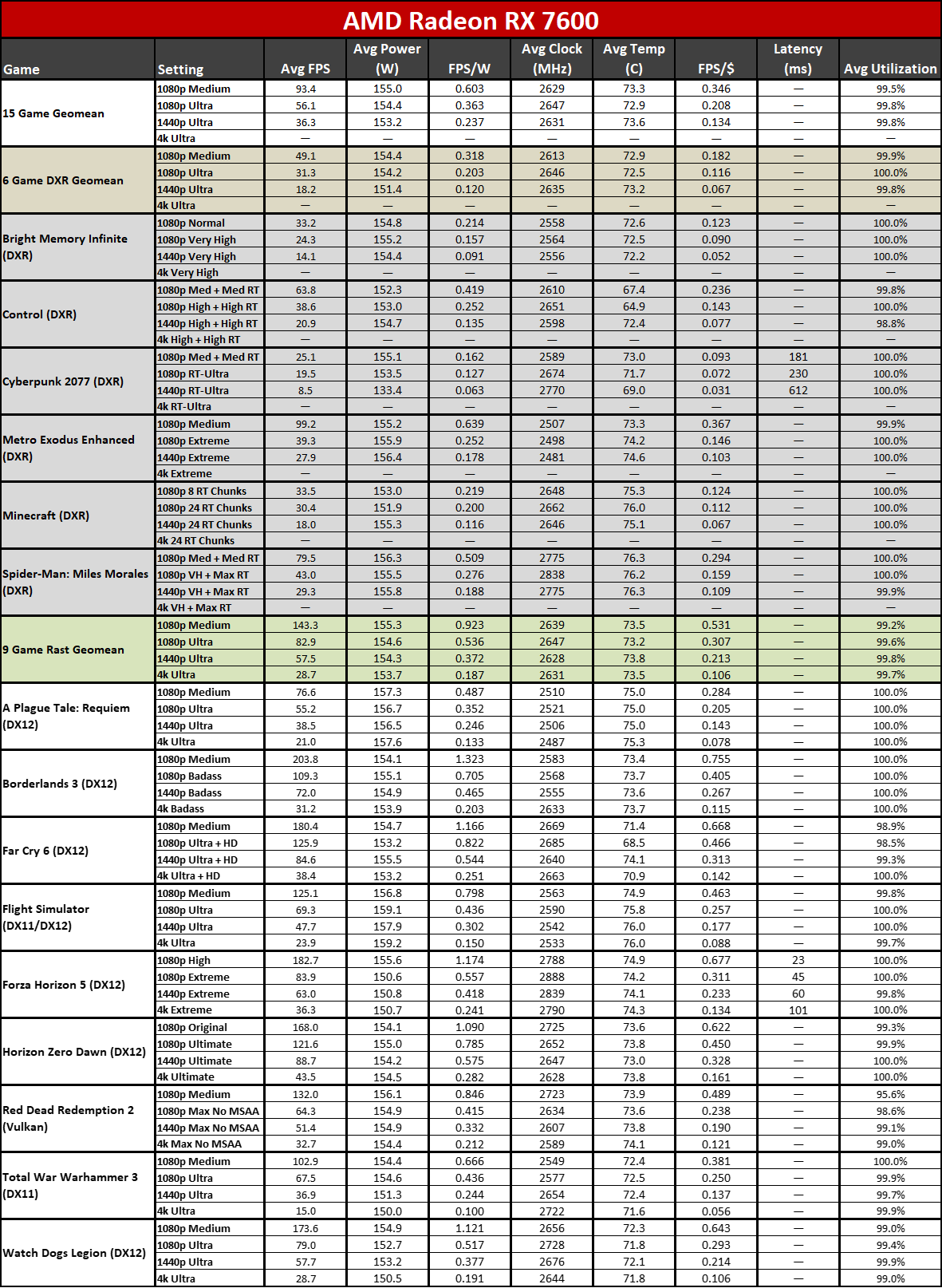
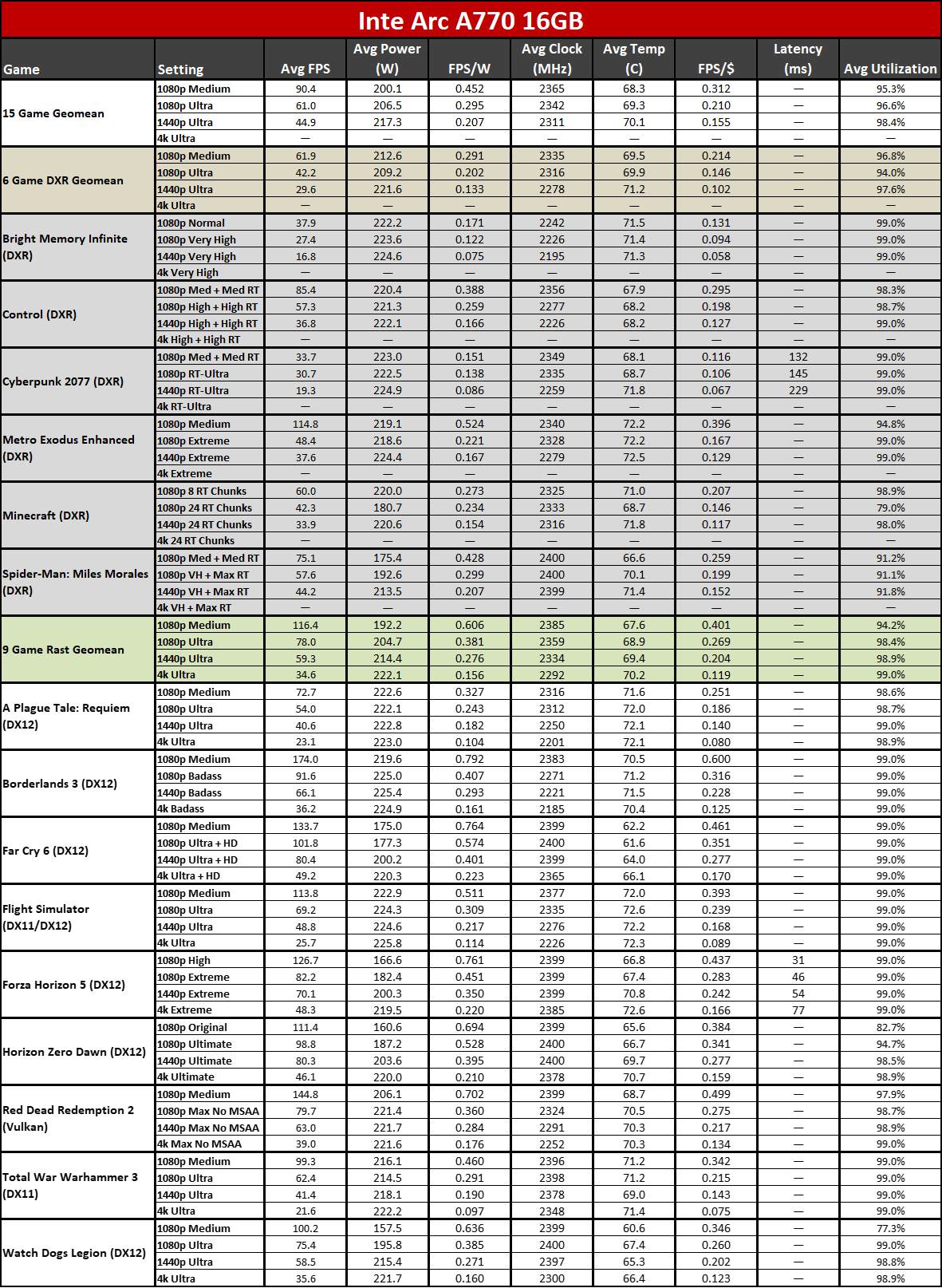
For those who like to look at the finer details, we've provided the above tables showing all of our gaming benchmarks, which include FPS/$ and FPS/W metrics (using the best prices we could find at the time of writing, and MSRP for the 4070 Ti Super). We won't dig into the details too much, but it's clear that Nvidia's Ada Lovelace GPUs lead all contenders when it comes to efficiency metrics.
Looking just at the cost of each GPU and its measured performance, overall value trends downward as the price of the cards increases. The 4070 Ti Super as such lands at the lower end of the spectrum, basically tied with the outgoing vanilla 4070 Ti, and a bit ahead of the 7900 XT. The 7900 XTX and RTX 4080 are the two "worst" values out of the cards tested (not including the two previous generation GPUs, as those are only available as used items now).
- MORE: Best Graphics Cards
- MORE: GPU Benchmarks and Hierarchy
- MORE: All Graphics Content
Get Tom's Hardware's best news and in-depth reviews, straight to your inbox.
Current page: Nvidia RTX 4070 Ti Super: Power, Clocks, Temps, and Noise
Prev Page Nvidia RTX 4070 Ti Super: Professional Content Creation and AI Performance Next Page Nvidia RTX 4070 Ti Super: A decent mid-cycle update
Jarred Walton is a senior editor at Tom's Hardware focusing on everything GPU. He has been working as a tech journalist since 2004, writing for AnandTech, Maximum PC, and PC Gamer. From the first S3 Virge '3D decelerators' to today's GPUs, Jarred keeps up with all the latest graphics trends and is the one to ask about game performance.
-
Loadedaxe As always, very thorough review. I wish these insane prices would come down to normal levels.Reply
If no one had credit cards, they would not be selling well at all. I am still going to hold out until the offerings from both AMDs and Nvidias next gen arrives. -
AgentBirdnest Wow, that's... disappointing, honestly. Like Jarred mentioned, I too was expecting it to be closer to the 4080. At the very least, I thought it would consistently outperform the 7900XT at 1440p.Reply
I had my eye on this card to finally replace my RTX 2060, but after seeing these benchmarks, I'm not so sure.
Part of me wants to have the better memory specs, in case games coming over the next few years will benefit more from it (Alan Wake seems to show that.) And I may upgrade from 1440p to 4K, but not for at least a year. But futureproofing is hard, since I don't own a crystal ball.
The other part of me thinks the 4070 Super is close enough in performance, and I could use the saved $200 to buy a 4TB SSD that I could make use of. But I don't wanna regret my decision in 2 years.But with either choice, I'm sure I'll be absolutely ecstatic when I upgrade from my 2060. : P
In any case - awesome review, Jarred! You do great work. : ) -
Colif Nvidia repeating what they did with 2070 Super.Reply
4070 TI Super is mostly a 4080
2070 Super was mostly a 2080
Guess old play book worked back then.
8U_S8vrRs-Y -
DavidLejdar Thanks for the detailed review! I don't care much for ray-tracing. So, if I'd upgrade towards 4K, it looks like the RX 7900 XT would be a better option for me - as it is a bit cheaper and with a bit more rasterization performance.Reply
It sure ain't cheap. In my case, I easily miss out on some other stuff though. I.e., it hasn't been until 2023 that I got me a smartphone (and then only a cheap one) - meanwhile at home, a rig with DDR5 RAM already, which should last some years.Loadedaxe said:As always, very thorough review. I wish these insane prices would come down to normal levels.
If no one had credit cards, they would not be selling well at all. I am still going to hold out until the offerings from both AMDs and Nvidias next gen arrives.
Also, here in Germany, we have universal health-care and federal minimum wage of 12.42 Euro. So even with locally low salary (full-time), and after payslip-deductions (such as for that mandatory health-care insurance), and with not too high a rent (as not every owner here needs money for a golf course), it is possible to save up a bit for a rig (without worry of needing a fortune for medical expenses).
And some accountancy helps too. Like, when someone spends i.e. $2 a day on fizzy drinks, drinking water instead means a saving of nearly $60 a month, or $720 a year. Smoking? Smoke some less. And voila, $800 for a GPU, while having improved health.
Not saying that I will get me a new GPU soon, and no reason to overspend of course. And if I'd be living in the countryside, to begin with, I'd would likely need a car and pay insurance for it, even if driving only a few miles every day on empty roads. Etc. But if one can put aside some $40 a month (without interest rate), not that tough to have a modern rig. -
cknobman AMD will likely need to lower the MSRP of the 7900 cards.Reply
Smart move would be to match the 7900XTX msrp to the new 4070ti Super. -
Devoteicon Reply
They are normal.Loadedaxe said:I wish these insane prices would come down to normal levels. -
Eximo All I can say is, go Intel? Need a disruption in the upper mid-range for sure. Even if it is 4070 Super / 7800XT levels of performance that would kick off some re-pricing.Reply -
FoxtrotMichael-1 Reply
I'm not sure what else you spend your money on but inflation has affected every aspect of the economy. Just about everything I buy for a family of 5 is twice as expensive as it was a decade ago.Loadedaxe said:I wish these insane prices would come down to normal levels. -
Gururu Reply
100% agree and watching for itEximo said:All I can say is, go Intel? Need a disruption in the upper mid-range for sure. Even if it is 4070 Super / 7800XT levels of performance that would kick off some re-pricing. -
edzieba ReplyThere's surprisingly little uplift in most games from the memory upgrades
No surprise at all: the 4xxx (and 3xxxs) series have not been memory capacity limited in any of the cards released thus far. Even the 4060Ti 8/16gb only started to see serious performance disparities when settings were cranked far enough for the performance choice to be between "not very good" and "still not very good", so 12GB/16GB is going to offer naff-all in real world testing.
Remember: buy cards based on actual benchmarking (ideally of the games you play), not based on numbers on the box.
